Alright, we are living. Welcome, guys. Welcome to the journey within It’s a journey of deconstruction and reconstruction of death and rebirth and today, I’ve got a very special hello hypnotist the founder of Twin Ravens Hypnotherapy and Research J Robert, Parker, In The House. Thanks for having me, man. Thank you. Thank you, dude. I think this will be a fun conversation cuz I mean, we. Absolutely. We both study hypnosis and I’d be very interested to get your perspective, you know, and how you got into this. So, um yeah, if you can share a little bit about who you are, how did you even get into this strange world of hypnosis? Uh, that’s an odd story. Um so, previously before the pandemic had been working as a chef uh that restaurant was actually where I met my partner. We did the stereotypical line cook ends up with the waitress thing. Interesting. And uh the the pandemic hit. And I had kinda seen the writing on the wall long before it had an effect. Long story short, you’ll say we both ended up out of jobs and it failed me to kinda pull something out of my bag of tricks to make money. I live in a very, very small town and there’s not a lot of ways to go about that. So, I ended up reading tarot cards professionally. And I was making a pretty good living doing that. And I noticed that I was reading people’s fortunes so to speak. And more using the archetypes of the tarot cards. Uh reframe their problems to them and help change their perspective And I got a lot of satisfaction out of that. And I started looking into what is a way that I can do only that. Uh and of course in an abnormal way. That I can do that cuz why not? And the Facebook algorithm. uh that one random point but HMI in front of me. previous to that, I hadn’t had any experience with hypnosis. I wasn’t even sure if it was real. I was in that camp And I talked to someone from admissions and they intrigued me. I figured why not give it a shot? This seems very interesting. And I think I was about two classes into 101 before I got my mind blown. The first time I saw the physiological responses of hypnosis. The things that can’t be faked. That is just reactionary. it just blew my mind. And then eventually I got to perform hypnosis and then, eventually, I got to experience it and that was a profound thing because uh going to that school, taught me a lot about myself and one of the things I came to learn is uh a lot of what I considered to be unusual behavior in myself. Uh wasn’t and a lot of what I consider to be unusual behavior in others, was it? I was just very extreme on one end of the suggestibility scale and I remember in class, they were explaining the traits of the intellectual suggestible of it’s like, oh, cool. That’s me and I took the suggestibility test and I scored like, eighty-two, my first time I wanna say. Jeez, man, that’s such an interesting thing because you’re, I mean you’re so rare and for you to be in hypnosis and experience hypnosis, uh I’m curious like who hypnotized you and how do they do it, right? Because you’re like the hard type. it was actually in a practice and it was with somebody I mean, I guess I should mention, this guy named Paul Villa Real and he’s since graduated, I believe. And uh, I told them what my suggestibility was and he said, cool. Can I try something? And he did what’s called an auto dual induction and that was the first time that it happened to me and that got me. It got me well enough that the next day, I wrote my custom version of that script uh based upon what worked for me and that was a very unusual thing because Previous to that, II did most of my experience with trance with self-hypnosis. Like, I can kinda help people along whenever they’re practicing on me because I was very aware of that state in myself and where I’d been there in the past, all that stuff. but in terms of outright just being hypnotized by somebody, uh that was the first time, and uh That was profound. Uh, the things that I learned and saw in that first time still kind of uh guide a lot of what I do for my clients. Because one of the things cuz I don’t remember too much of what was addressed. But one of the things that stands out to me as I was introduced to the future version of myself like 5 years in the future or so And that was profound to me. And that person that I saw kind of sticks out in my head and every day I think about what I can do to get to that point. And I have used that to a very great therapeutic effect with certain clients. Uh, I got the specialization in transgender hypnotherapy And one of the things I found with my transgender clients is that that class made me realize so much that it wasn’t just a psychological thing that it was a it was a physiological thing. And in that, that means that your brain is telling you that you look one way. And what you’re seeing in the mirror is telling you something very different. What if you were able to meet who you know you are? What if you were able to meet the person that looks how you know you’re supposed to look? And I find that having that, giving that to that person is substantial to their sense of self and their sense of well-being. Interesting. So, that does sound intriguing for so for someone who is, you know, they’re looking to meet their future, you know, 5 years from the future self. How how can we do that? Um, do you do that through self-hypnosis? Is this a visualization? Um. Um. Visualization. Visualization. I tend to use the LAL. Uh the uh for anyone listening that doesn’t know what that is. It’s a type of hypnotic induction or deepener where you start at a certain floor on an elevator and go down. The elevator opens and you meet this person and I make no attempt to describe this person. It is simply you in advance and II tell you to notice how this person looks, how they hold themselves, how they smell, like how, how they and depending on your suggestibility is kind of how profound that experience is. I um I don’t get hardly any visualization. Uh, I get weird flashes. Uh, I can’t smell anything. I don’t get anything auditory but I get a very heavy kinesthetic response. Uh. Interesting. Fuel things. Yeah. In imagination, right? In hypnosis. It’s not like you can’t smell things right now. Yeah. In the context of hypnosis. Right. Um. feel like if you tell me to walk downstairs, I will like to feel the stairs under my feet and things like that. That’s fascinating. Okay. So, uh for people who are listening, they’re like no idea like suggestibility type, intellectual, physical, you know, you know. Maybe like. Yeah, yeah. Yeah. Cuz like we know, we know exactly what we’re talking about cuz we’re from the same college but um I mean, you break that down and uh yeah. Yeah, just go from there. Okay. Well, you’re the host. Why don’t you explain suggestibility to your audience? I’m Good, man. I could, I could. So, I was like, yeah, why not and you can critique me. But I’m not the one So as you, like you were saying, right, we’re all, first of all, we all can go into hypnosis. That’s a very, very natural state. And um, we, but we’re just on this kind of this uh, scale of suggestibility and some people do better with certain suggestions. versus others, and I lean towards kinda where, where you’re at, where it’s like, we do the, the indirect stories, and then on the other side is the very more paternal, hey, you’re gonna feel this, this is gonna happen, you are now in hypnosis, X, Y, Z, right? And that still does, that can work for me and you know, for others, but, not honestly for you, right? Cuz you’re, you’re very objectively something. If you are literal with me, you just hit a brick wall. Yeah. So I mean like go ahead. Go ahead. I respond very well to stories and um that is so my entire life like I literally when I was a teenager my friends used to text me and just say tell me a story. I just make something up. And to this day if you tell me to make up a story, I can. Like, just off the top of my head. And I uh, a big revelation and it was initially thanks to the man that uh ended up being my mentor. uh, Joe Burns. Oh, dude. Yeah. Awesome. Yeah, and he told me, to throw the script away. Don’t work off script and I took that to heart because it’s much more intimate and so now, that’s what I do. I make up stories. Those same stories that I used to make up for my friends. I now just make up for clients that a lot of the paperwork that I have them do uh for their life history and the um the questions that I ask and the initial consultation and session are kinda getting to know like what story you wanna be told, how you want your story told, and for example, I have a client who recently came to me and this person is a software engineer. Uh a somnambulistic software engineer nonetheless and II just decided because this came at a time in my career I become very frustrated with pre-written scripts. Like I had thrown one away in the middle of a session. Hm. And those three sessions that I had that day I told myself like I’m not gonna prepare a script. I’m gonna figure out my inductions. I’m gonna ask some questions. And I’m just going to make myself go. And I did. And those were three of the best sessions I’ve done. And what I end up doing with the software engineer is I spoke to them with metaphors of code, visualizations of computers, and debugging. And um, Sure enough, that that that safe place in their head was represented as a computer bank. what the way they perceived that computer bank uh mandated where I took that therapy. Just to kind of adjust their visualization. And that’s had fantastic results. Right. So, it’s like when we tailor the therapy to the individual client who’s gonna have, you know, a different background. They’re gonna have different metaphors and um now, this is good cuz um the way I explain like the unconscious and the conscious is that the unconscious is just the realm of metaphors and emotions and it that that seems to be the reason why uh we humans love stories. It’s all. Yeah. Metaphors. Exactly and I ask people. One of the examples I give is, have you ever watched a movie and gotten angry or sad or happy? Uh based on what was on screen. Of course, the answer is inevitably yes. Yeah. So, yes, why? You consciously, logically know that you are watching a falsehood. You know these things aren’t happening. So, why do you feel these emotions? And the answer is that. Your subconscious does not differentiate fact and fiction. It’s a metaphor. It’s a and that’s all it sees that’s well, everyone but the high physicals. Uh, the high physicals don’t tend to dig the metaphor or anything like that. You just gotta tell them how they wanna be and it’s fine but uh for everyone else, it’s and at this point, because of this mentality I’ve taken with my I guess be hypnotic storytelling. Every time I watch a movie now or read a fiction book. I start noticing ways that I can retell that story for different applications or specific scenes. One of the most amazing movies I’ve seen recently is uh have you ever seen that Disney movie Inside Out? Yes. Yeah. Yeah. Uh. Yup. Have you seen it recently? No, that was like, wasn’t that like a decade ago? Yeah. You should rewatch that. Uh mental health professionals helped write that movie and it is still used in the mental. Well, that makes so much feel today. Yeah, that makes so much sense, dude. Yeah. When you rewatch it, with knowledge of the subconscious and metaphor It’s it blows your mind. So, okay. There’s that scene where they enter the subconscious and the critical mind is represented by those two idiot guards. And how do they pass by the critical mind? They confuse it. That’s my hat. No, that’s my hat. Wow. They do a confusion abduction to get rid of the gatekeeper of the subconscious. And more than, when they’re actually in the subconscious, and this speaks to a lot of what I say about fear. One of the first things they see is a giant vacuum cleaner. Um because the way that girl’s subconscious remembered that is because the way we remember our fears is in that moment in time. Frozen at that moment in time. So to that fear and that perception. That’s a giant vacuum cleaner because she was very small when she got that fear. And that has a lot to do with how I address fears and hypnotherapy. Because one of the things I stress is when we have a fear or a trauma which I argue is the same thing because we’re not afraid of something and we as we’re traumatized by it and if we’re traumatized by something, we have a fear. And what I it’s all where it happened at the time. For example, if you became afraid of a vacuum cleaner as a baby or a very small child, the vacuum cleaner would appear much larger because according to your memory and your perception, which cannot be changed until it’s addressed in hypnosis, that thing’s giant or maybe you were bitten by a dog when you were a child and you remember it as just Kujo, some giant, hell hound that almost tore your ankle off because it was so intense and traumatic. Where and hypnosis, maybe it’s just a Jack Russell Terrier that bit your ankle. Hm. When you were 6 years old and you had the emotional intelligence of a 6-year-old. So, you’re going to retain that memory as a 6-year-old until you readdress it and allow that person to uh gain a new subconscious understanding and association of that event. So, I’m gonna try to play advocate here and say, okay, I get it that, you know, when we were six, maybe we’re scared of a vacuum cleaner cuz it seemed very big or a dog or whatnot and we had to distort perception, right? But now that we’re adults and that we have developed our prefrontal cortex and our reasoning and now, we can go and we can experience that, you know, dogs are generally safe for the, for the most part, and happy and man’s best friend, or the vacuum cleaner, you know, it’s fairly harm is. Right and so uh why can’t we just maybe um do a little bit of exposure therapy, a little bit of cognitive behavioral therapy, and just say, hey, this is uh, this is false, this, you know, you can, sometimes. Um, and it depends on how traumatic the memory is. And really, a lot of the way that fears are addressed in hypnosis has to do with uh, desensitate, desensitization, that the same things you would do in the physical world you can do mentally. If you were afraid of dogs rather than go so far as to address that fear live and in person with the dog you could go through that same process of consciously and realize that you have control over that emotion. There’s uh as you know there’s something called circle therapy. Where in hypnosis you are presented with a fear or an anxiety and you are asked to recall that fear and the emotions associated with that fear. Consciously. So, you bring it up on purpose. And then it’s at the same time you tell them to bring it back down. And the purpose of this is for one, every time you tell them bring it back up. It’s a little less. But they gain the understanding that your emotion and your reaction is under your control. The way that you choose to react to this fear is 100% under your control. And once there is that realization, fear tends to fade. or it’s not yours. Uh, that’s an interesting thing I’ve encountered before. What do you mean? Oh, it’s not yours. just that. Um so, I did uh a podcast couple of months ago. Uh about fear. It was called fear. It’s run by two clowns and they were interviewing a German spy who had a fear of heights. And I uh and this is on my website by the way. Everything I’m about to say you can listen to this interview. But this person, this man, um not the shy away from it. He’s a government killer. Like he is what he did. He was in special operations. He went into places he couldn’t talk about and did things he couldn’t talk about. He was afraid of heights. As unusual as that is. And uh this was all done in about twenty minutes. I transit him. I took him back to that moment on the plane. Cuz he got that fear from his first training jump when he was seventeen. And in the process of just walking him through that moment. He realized something. That he had forgotten about until that moment in hypnosis obviously, this person was a very high physical. So, they said they could feel the vibration of the engines. They could smell the gas on the plane. They were there. Um, the kid that jumped before him screamed in terror and he went from being fine and calm to terrified. But he didn’t remember that. And so at this moment, he realized that this fear he had been carrying for decades wasn’t even his and I called him out of a trance, and within 5 minutes of that, he was hanging off the side of a balcony. Saying like, I don’t feel a thing. Huh. So, yeah. This is all in hypnosis. Yes. Um. And not the balcony thing. Yeah. That’s what’s interesting. So, he remembered in hypnosis the um. The other kind. Where’s my cause? Just got scared. And it wasn’t even his fear that that kid’s fear transferred to him and before he had time to process it, he was kicked out the door. So, this entire time, he’s been perceiving this event as his fear when as you know, if we’re around someone afraid or scared or happy, if but for a short moment, we feel that before we process it out as not ours but what if you didn’t get that chance? What if you feel that fear and before you could be like, man, that kid was scared. Somebody’s grabbing you by your collar being like, your turn. and he just perceived that as his fear. So, yeah, fear didn’t belong to him. Wow Yeah. So, I’d be curious um on your philosophy when it comes to trauma, right? So, for that particular case, I guess he just, he was able to kinda remember and and and bring up that unconscious material and then, oh, hey, this is not my fear. Um but do you think for trauma? Before we even get to that, what do you mean when you say trauma? Trauma is any event. leaves an impression later down the line. Usually negative. Uh, I guess it should be specifically negative. Um, something that leaves an imprint, something that uh like, okay, this would be just seen in the movie Inside Out. Trauma is when a negative memory becomes a core memory. that that it becomes a core memory is an aspect of your personality. So, it’s. Oh. Whenever something negative becomes a core aspect of your personality. Because of course, we all go through negative things but what if that negative thing is so extreme or its perception is so extreme that it formed every opinion and perception that you had after that event because it was a core part of your personality? Hm. That’s why that movie’s so good. Like, dude, I need to rewatch. You do. I took notes. I’ve got notes somewhere on that damn movie. Well, yeah. I feel like I’ve matured so much since then and then with the knowledge of hypnosis and now, parts therapy. So, I don’t know if you ever heard of uh internal family systems or any kind of parts therapy. I’m sure you, I mean, we, it’s, it’s been mentioned here and there in the college. Yeah. But um yeah, it’s so amazing now that I’m in like parts therapy and I’m sure it would, you know when you see all the different emotions like, oh, that makes so much sense. Like, yeah, we have all these different parts of us that sometimes different things and it gets into conflict, you know? So. One of the things that I’ve really kind of come to realize through doing this work and that I tell all of my clients is we are all at our core children. We are all scared eight-year-old kids. We’ve kind of got that cuz that’s when we form our core beliefs from zero to eight. So, by the time we’re eight, that’s our core self. Yeah. And that, that you, all exist and that what it means to be an adult is to learn how to parent yourself. How to parent your inner child. And that’s a perspective that I ask a lot of my clients to take. Because II asked them especially the ones that have children. Like the way, you talk to yourself. When you talk to your child like that. Yeah. But is that the way your parents talk to you? if you didn’t like that, why are you continuing to treat yourself like that? Why, why don’t you give yourself that same understanding? Because what, think about it. We all wanna stay up later than we should. We all wanna eat **** that we shouldn’t but we have that voice in our heads. Like, no, you have obligations in the morning. You have to get up or you know, that’s gonna upset your stomach or whatever have you and it’s the same things you tell a child but you have to tell yourselves. So, the way that you speak to yourself in that regard is very important. Yeah. Um what I’ve realized at least for myself, is that there’s even more than one inner child. Yeah. You know, there are lots of parts of us um that that have different goals and different perceptions and might get, you know, yeah, might get into fights or something. Um and so, it’s not even just the inner child but like, how do we parent all the different parts of us and realize that there is no bad part? You know, you wouldn’t call a child bad. You just would. Exactly. You know. Um, re-educate them. I heard something. I can’t remember if it was in class or in something I was watching. But it said that everyone has good intentions. Yeah. Everyone. No matter how evil or messed up. If anything there are always some manner of good intentions at their core. Yes. It could be wildly misperceived. It could be a mental illness. there are always even, even crimes of hate, even when somebody murders someone else, they’re trying to satisfy something in them. They’re trying to make something in them go away. So, they’re trying to take care of themselves. Yup. Or they feel some weird obligation to fulfill. It’s all manner of reasons but all all of these things boiled down to. They are for themselves or someone else or whatever have you. It’s good intentions. Just like your subconscious Yes. Always has your best intentions in mind. Even with traumatic things. Even with bad reactions. It is still just trying to protect you. Yeah. Just trying to preserve its homeostasis. It’s normal. yeah. Now, that’s powerful. And I think when we understand that, you know, I think sometimes we can like vilify the subconscious or vilify these different behaviors but they’re all serving some kind of purpose. So, you know, if you’re, if you’re traumatized, it’s trying not to get you into that painful situation. Yeah. Yeah. Yeah. So, if you have crippling anxiety, it’s you’re subconscious, it’s your mind trying to protect you. You just have this fear reaction that’s out of control. And It’s there’s a lot to be said in terms of healing just for the awareness of that. So much of my work and especially my breakthrough work with clients has been through subtle changes in perspective. And that’s it. It’s not much more than that. It’s sometimes there are some changes to behaviors or thoughts changes. But a lot of it has to do with um the way you look at a situation, how you perceive it, why you think this way, why you think this way about yourself Although it’s stereotypical in therapy, I find myself asking the question, why are you feel that way? Where does that come from? A lot. Right. And there’s always something. There’s always another layer deeper until you get to that aha moment. And you can tell whenever something has left their mouth that even they didn’t think of. They’d never even made that association before. And just by having that come into their conscious mind by being able to consider that logically. You’ve already gone so far in that healing. It’s like when we raise our awareness and take different perspectives, then, behaviors start to shift. Well, it’s like uh I’m not a big NLP guy but there are some aspects in neuro-linguistic programming that I like and one of those is the mindfulness aspect. The idea of being aware of what you’re thinking. Uh taking control over your thoughts. I thought Joe did a very good example when he talked about how he was crossing the road and he started getting this perception of these men in this car at this crosswalk about how they wanted to do him harm and he started getting anxious about this imagined situation and he stopped himself and he forced his thoughts to something ridiculous. I forgot what he said he pictured those guys in this car doing but immediately changed his thought pattern. Yeah. And he was able to just walk away and he looked back and he said, they’re just both on their phone doing nothing. And that’s right. He’s told me that story too. That’s right. Yeah. And II love that story. It’s hilarious But it’s a very good example. Because so so often we let our thoughts kinda run out of control. And it does us some good to stop and think like why do you think that? Why are you thinking that way? Why? Why do you believe like there’s something to be nervous about in this situation? Where is that coming from? Hm. All your trail back. Figure out why you’re nervous. So we’re so for somebody who likes you asked them that like oh why are you nervous? Why are you afraid? And they’re like I don’t know. No idea. Well. What? How did you ask? Mhm. What makes you nervous? How do you feel when you’re nervous or afraid? Um did you, were you always afraid of this? If you weren’t always afraid of this, when’s the last time you remember not being afraid of it? When is the first time you remember being afraid of it? most time in my experience, people haven’t taken that logical path back. They just stop with, I don’t know. They it’s that self-examination is difficult. Um, a good example of this is I had a client that said that They wish that they were able to perceive themselves as others perceive them, as strong as others perceive them and I said, well, why don’t you think you’re strong? got into a car wreck and I felt like I could have done better and I felt like I failed. Why do you feel like you failed? Well, because I couldn’t be there when my grandfather died. and there was just this dawning realization when they said that. And I was like, you never said that out loud, have you? No. There you go. So, that is currently on the table for the next time and uh it’s just a good example of just keep following the path back. If you do, there there’s always a reason for the behavior. It’s never an I don’t know. There’s an I don’t want to remember. There’s uh I choose not to know but. Yup. There’s not a mystery. There’s always a reason that Could be had through questioning, figuring out when and where, and all of that. Yeah. Yeah. So, I’m curious cuz there are different schools of thought and not even hypnosis but in therapy that maybe, hey, don’t go back to the cause.

You know, that’s just bringing up things that um that don’t necessarily need to be brought up or you can retraumatize people. X, Y, Z, focus on the solution, focus on the future, and more of like the positive thinking kind of approach. Um, I’m curious about what your thoughts on that are. It depends on the trauma Uh if it’s something like that they view as very grievous, it is something bad. I don’t ever ask people what their traumatic thing is. Like, you can just tell me that something bad happened in 2,000 seven. And that’s all I need to know. Uh, beyond that, all I, with, with that, I will, there’s a couple ways. But you, there’s no direct reexperience. You don’t take them back and make them live through it again. It’s antithetical to the goal. What you do is you take away that association. You make that not a core memory. They don’t focus on the events. They focus on the resolution. And the letting goes after that resolution. There’s a method that I very much enjoy that involves having them perceive this event on a screen. And they fast forward and rewind and fast forward and rewind until all that exists before the event and after the event. that that association is. And then after you establish that, you let them let go of that memory, of that association. And Trauma is very dependent on what happened. And uh sometimes it’s dependent upon um my referral. Because many times whenever it’s complex trauma uh I’m speaking to them on referrals from a mental health professional. Mhm. And a lot of it has to do with my communications with that mental health professionals. Whatever you learn. You know you’ve done. What do you need to be done? Um, it’s very important if you do find yourself working with uh medical doctor or mental health professional to get on the same page with them. Like involve yourself in that client and have them help you, help them, help that client. It’s a team effort at that point. It’s so dependent because II work with people with combat PTSD. I have uh postpartum depression. It’s just a matter of where this trauma and negative behavior come from. Often, uh with the combat PTSD, it’s always really heartbreaking to do those and I’m very happy that I get a chance to work with those men and women. there’s a lot that’s, for example, like what they’re not allowed to feel. Because you’re expected to, I literally soldier on. Hm. And there comes a time that that’s not a thing anymore. That you have to address what has happened to be able to heal. And I see a very similar thing in combat veterans that I see in people who suffer from trauma. they’ll go back to the closest safe save point in their head Uh it’s usually sometime when they’re a late teenager or soldier. It’s generally seventeen, or eighteen. And they’ll start adopting the traits that age. because they have all of these traumatic memories from older when they were older. So, it seems like psychologically, they just go back to the last time they were safe and untraumatized because it’s no longer safe to be an adult and I see that repeated time and time. Yeah, it’s. Wow. Interesting yeah, it must be very, very difficult to work with. Yeah, people who experience extreme, extreme trauma. Mm-hmm. So. I’m glad you are. But it’s one of those things like, once I realized what hypnosis was capable of and what it could do I kinda felt obligated to offer my services to them because it doesn’t matter what you think politically. It doesn’t matter what you think about war or the war or soldiers, the government, or anything like that. It has to do with these are deeply traumatized people who not getting the care and resolution that they need. I just feel obligated that if I have this toolset that allows me to give them that resolution, I should, that it doesn’t matter anything at all if I’m anti-war, pro-war, anti-government, pro-government, none of that. None of that matters. It’s just people. It’s just men and women who have seen things and done things that no one should be asked to see or do. And that’s it. That’s all it is. I’ve had a chance to see a wonderful change in those people because so much of it is it’s just difficult for them to deal with that, to face that. Whatever it is that they see. to do that is profound. To give them a safe place to do that. That is guided and secure. And it’s an interesting thing that for some reason people are hesitant to seek out psychotherapy. I have no problem with hypnotherapy. That. Really? Yeah, and I don’t know why that is. it’s fine and generally, I will encourage someone that if this isn’t something that they’ve seen a therapist for and they need to in the process of things, just be like, okay, now that we’ve kind of helped you through this, you need to consider bringing on someone else as well.

http://adgenie.gotop100.com/
http://topdogsrotator.com/r/leroymoco

https://flyby–buffy.blogspot.com/
And therapy isn’t the cure-all. It’s great for a bunch of things but sometimes you need other stuff. Yeah. Yeah. In fact, like, the way I see it is to attack it from every angle. Mm-hmm. Absolutely. Yeah. There’s no reason not to bring in everyone who could help. Yeah Perfect. So, uh I’m just going back to um you know, how you got into hypnosis and you talked about, you know, self-hypnosis and I’m sure that that has helped you and I mean, it’s helped me. I think it can help a lot of people where they can just utilize this modality, get over, get over some fears maybe, you know. Absolutely. I’m curious how, how you do self-hypnosis and what’s worked for you. So, that’s changed recently Longest time I did it as we were trained. And uh one of the things I’ve started to focus on recently. my self-hypnosis work and with my clients is nostalgia. This weird thing that exists in our minds seems to be separate from everything else. And what I do to self-hypnotize now is II focus on one of my far-off memories. Like one of my distant distant nostalgic childhood memories. Now form that as solidly as I can and just start doing breathing exercises. And focusing on that nostalgic moment and gets me right into a trance every time. Interesting. And do you think that would work with other intellectual suggestions? You know, high E note? Uh, I have clients that nostalgia has started to become a major part of our work. Because, um, I don’t even know how to define it. It doesn’t exist in a space like other memory. It’s it’s different. It’s more intense. It’s standard memory. It doesn’t have that feeling that’s associated with it. And I don’t know what that feeling is. Um actually, that’s one of the things that I want to focus on the most with research as that’s what nostalgia is and what its uses are about hypnosis. Yeah. Um and it’s, I’ve already started using it with a few clients, this notion of focusing on intense nostalgia to facilitate trance and I’ve had very good effects. Yeah. Well, that’s that reminds me of Erickson and I’m sure you know his story by the way, for people that are watching that and not familiar with Eric’s uh Milton Erickson, he was one of the greatest hypnotherapy of all time and did very indirect, artfully, vague, lots of metaphors and stories and god just brilliant results as a genius and um you know, when he was younger, he had polio, couldn’t move, thought about a memory of when he could and then all of a sudden 30 minutes later, he found himself Maybe. Well, that’s why a lot of the clients that I’m working with nostalgia are my clients that have self-perception issues and self-confidence issues Because nostalgia exists in a point of pure happiness. You don’t have negative nostalgic memories. Really? And yeah. This nostalgia by its very definition is positive. Huh, and it’s it may or may or may not be true because memory sucks but it doesn’t matter because your perception of that memory is nothing but positive. Nothing but happy. And so by recalling these memories, you’re able to recall this happiness. Uh, one of the more interesting bits of homework. That I’ve given my clients is uh sometime between now and our next session. Go on YouTube and look up an hour of old commercials or old cartoon intros from your childhood or something Like that. Um. Cartoon Network. Yeah. Something. I’ve uh I spent like 2 hours one night just watching intros to cartoons from the nineties. Like that’s it. And I’ve kind of become very focused on it. I very much love that sensation of nostalgia. I think it’s important therapeutically. That’s kind of why I put so much effort into exploring it myself. Yeah. Uh, Anytime I have like a nostalgic memory or thought, I kind of try to capture that and examine it and like figure out what I could do to bring myself back to that time and just that ponder ance alone has a hypnotic effect And I don’t know what it is about where nostalgia exists in the memory. it’s its present. there is an odd field of science. That’s kind of coming up now. That’s the quantum sciences. And there are some individuals doing work right now. or up to it including hypnosis that are fascinating. Um, the main person I’m speaking about is this guy named Doctor Dean Raiden who is the head of the Institute of Noetic Sciences. And yep I heard of them. Uh, he wrote a book called Real Magic. That is the scientific research and analysis behind certain processes. Like ESP whatever have you. Um, and it’s done strictly from the view of science and research. And These things are related to hypnosis because if the institute can be said to have any goal or direction, it’s consciousness research. Why? What are we? Why are we? I kind of think. Yeah. And the book doesn’t answer any of those questions but this book does provide uh an interesting indication of the direction of science and what we’re looking at in the next twenty years. One of the most fascinating things uh about living in this time certainly isn’t the plague or climate death but uh there is a concept called the singularity and there’s a version that exists in AI and there’s a version that just exists as humanity and the idea of the singularity in terms of humanity. Are that human technological eras exponential? That to get from the bronze age, the iron age was like two 2,000 years from the iron age to the industrial age like a thousand. Industrial age. It only lasts two hundred. Then, you get to the point now that the internet age only lasts twenty years. So. Oh, we’re not, are we, Oh yeah, you’re right. Uh-huh? I was just trying to think like, well, yeah. And. Previous to that, the computer age only lasted like fifty And so, now we are approaching this point in human evolution and development that um progress. The human era can no longer be measured. That each human technological era begins to overlap itself. And that progress became becomes foreseeable by the organic mind. we have a date for that. And it’s twenty-forty-five. Uh between twenty forty-five, 2055 is when the singularity is supposed to occur. And what? So what is that what is that mean exactly? That means human technological progress becomes infinitely fast. Every day there are new technological breakthroughs. Every day there is more progress. Um. How does even determine this state? Do you know? Well. I don’t know. Smarter men than me have done this math. Yeah. But it’s you see it evident in human evolution. These cuz there’s there were times in our history when thousands and thousands of years were spent the same. centuries were spent the same. There was no real development. It was just kind of an age. Living in the era that we live in now, it becomes very difficult to conceive of that. Because even if you’ve been around for twenty years, you’ve seen insane amounts of progress. And that simply just didn’t happen. Previously. Right. Ever since the industrial age for better or worse, we’ve sprinted towards this exponential progress, and as to what singularity looks like, oh no. Uh, I surely just hope it’s not a new iPhone a day. Uh, I’m hoping it’s not the AI, you know, um. Oh, god. Take me over the world and. The matrix. I uh. I’m kind of opposed to AI. Kinda not. Because to get AI, we have to first solve the consciousness problem, and we solve the consciousness problem. Good luck. That pretty much unlocked the singularity right there. But at the same time okay, let’s say if we unlock consciousness, let’s say we’ve created an artificial intelligence. We have created a thinking, feeling machine. The feeling of what? How do you know that consciousness implies emotion? What, how do you know what that emotion is? Right. Right. It’s defining consciousness. Mm-hmm. Which is the tricky part. So, and then one of the interesting questions I’ve, it’s been posed to me is does emotion evolve? Are we more emotionally intelligent now than we were 500 years ago? You gotta remember 500 years ago, what was considered fun was watching the local heretic gutted in the public square. So, I have to think that, yeah, we have grown. I, I do think we’ve owned in some ways, and at the same time, you know, there’s always going to be some kind of watching people get, you know, it’ll be a violent movie. Um. Yeah. Yeah. US, UFC, you know, we I mean II remember. Yeah. I don’t know how old you are but. I’m almost forty. There was a show on in the 90s called America’s Funniest Home Videos. That’s right. And it was hosted by Bob Saggett for some reason. And uh there used to be a rule. But it first came out. That no one could get hurt. And the video. It was an explicit rule. What? no1 could be injured. Yes. Well and then the dude getting hit in the nuts by a football One 3 years in a row. And they realized their entertainment value. Exactly. Cuz when I watched it, it was like 80% of people getting hurt. Yeah, absolutely. Yeah. And uh that’s an interesting aspect of humanity that to my knowledge, only the Germans have attempted to quantify. Uh, they have a word called uh Shodden Freuda. Which basically if I remember right, translates to the sad joy. And it is the pleasure that you get from other people’s pain. It is you who laugh at someone falling downstairs. It’s the reason you laugh at anything like that. Though the Germans have a word for it. It is Yeah. It exists Universally. And that is the very reason that um that that things like America’s funniest home videos or **** exist. Yeah. And it has to be II wonder really what is it psychologically that makes us like that? Is it a survival aspect of that ain’t me? Yeah. Yeah, I don’t know. Well because one of the weird questions I’ve never heard answered is uh why do we laugh? Like what even is laughter? Right. What is humor? Yeah. Uh-huh. and um because it wouldn’t exist for no reason. Laughter has to have a function the most interesting notion that I’ve heard is it was made as a diffused mechanism. The whole idea of why we find humor or awkwardness humorous. Because of like let’s say you were walking around the pack way back in the day. And you heard the Bush’s Russell. And everyone gets scared. You see the rabbit jumps out, so you laugh. And that signal which creates a neurological response in any human that hears it Is a way to signal the all clear. And maybe it’s a way to signal that hey that wasn’t me that just slammed into a **** curve on a bicycle or something like that. Like I don’t know what that is. I don’t define what humor is or why we laugh, to begin with. Right. Difficult question. And then you make it even more complex by the fact that some animals laugh. Really? Uh. Huh. Rats will laugh. Horses will laugh. Um, horses have displayed complex humor. Rats will laugh. Rats, you could tickle a rat. It’ll laugh. Giggle. That is so strange. Wow. They’re hyper-intelligent. Um, A horse. There’s some search horse prank on YouTube and you will get nothing but videos of horses taking revenge on people and laughing about it or playing a prank on their handler or something. it’s pretty. That’s always been the strangest thing to me because that implies very complex emotional intelligence to have humor. Yeah. Well, we’ve strayed. This is a very interesting topic for sure, man. Philosophical, psychological, like cultural, uh what’s called anthropology, anthropological questions. Um kinda tying it back to hypnosis. Well, I mean and you were talking about singularity and consciousness. Was that, were you going somewhere that in terms of hypnosis? Who knows? Um well, probably where I was going with that. Um if not, where I’m going now is that what we do is going if it’s not already it is going to become vital to consciousness research and what it means to have that type of increased development that we can analyze ourselves and others in ways that we haven’t been able to in the past. I’ve heard some theories that the notion of metaprogramming. Being able to actively change our thoughts and behaviors is uh an evolutionary step that is not something we’ve always had. That this ability to change everything about ourselves to suit our purposes is evolutionary. And I will take that one step further one of the things that I propose in many of my interviews is we don’t have free will. If everything of what we do is a product of association and learned behavior. How is that in any way an expression of choice? Now where free will comes in is when you choose to alter that behavior to suit your life when you choose how you want to view something. When you choose how you wanna act and react to something. Right, but aren’t those also dictated by past programming, by culture, um your knowns, so to speak? Yeah. You know. Could be. But it is the conscious choice of say if you have anxiety and you wish to resolve it. That is a conscious choice. Um. Right. Another example of a guess is if you don’t like a certain food, well, it stops. Like it. But you can’t. Okay, well, what if you could make that choice? What if you could just choose to make a certain food or like reading or like something in particular? What if your association was different? And that’s where the change comes in. That’s where the choice comes in. At least I think. That’s just uh the logical quandary that I like to present to people. Yeah. You know, this whole free-will discussion, man. That’s above my pay grade. I do mean on most days, I lean towards, you know, there probably is in free will but What I will say is I think it’s important for us to believe that there’s free will even if there’s not. Just to function in society and for mental health and yeah. Um, there are a lot of things like that that you don’t have time to get into today but it exists for you. You just have to play along to function. The biggest landmine in thought projects I could think of is simulation theory. Because you can neither prove it nor disprove it. So you could just continually fall that rabbit hole. So what is simulation The idea that we live in a simulation? Okay yeah, the matrix. Yeah. Yeah. Yeah yeah. There is no way to prove it. There’s no way to disprove it. Yup. And I have no couple of people that fell far down that hole. Yeah. So, now, this is not a lot of quantum physicists, okay? And obviously, I’m not anywhere near that realm and intelligence but from what I’ve heard and read and understand as a layman is that there is an interpretation that will lead to us being in a simulation, there are some quantum physicists who would say that, and um. Uh, who’s the deal? That it is. Yeah. Statistically more likely that we’re in a simulation than not. Is it? Yeah. Yeah. And it the singularity comes into that because it assumes that any civilization that gains enough technology to run a simulation will do so simply to gather information and that given our technological progress, it is more likely that we have reached that point and we are in a simulation, then, it is not. So, wait, maybe the similarities are just when our when our holes pop open and we all get to come to to play in the real world. You know what? I think this ties nicely into hypnosis. Yeah. Okay. Because our beliefs, our core beliefs, a lot of them, are just BS. Yeah. It’s all perception. Reality is perception and as hypnotists, we can help you change that perception. Yeah, I don’t know if you, if you’ve been part of like a stage hypnotist show, hypnosis show? No, I’m opposed to stage hypnosis. What? Uh. It’s something I’ve to develop and like, yeah, I get that reaction a lot but speaking to clients and speaking to podcasters doing interviews, Stage Hypnosis is responsible for 90% of the misconceptions and falsehoods about hypnosis. And I could say To me, hypnosis and hypnotherapy is a very, very, very powerful tool and it needs to be regarded as such and if we’re up on stage using what is supposed to be a powerful tool to make people stand on their head, that doesn’t allow people to view it with the, the gravity that they should because, to them, it becomes this, this parlor trick this and more than that, I’ve encountered people who’ve had negative experiences with stage hypnotists. Uh because of what they’ve experienced on stage, they would never get hypnotized again. I’ve thought about that a lot. Would I ever do stage work? And I think at this point, the answer is no. Uh, I would do parlor work within a small setting like Transing one person in front of a small group just as a demonstration. That’s fine but doing it as a spectacle in front of a crowd. I think personally, this is only my opinion that it robs hypnosis of some of the dignity that it deserves. Hm. And I understand why it exists cuz yeah, it’s a neat thing But like, given how important I feel that hypnosis is to, in the understanding of it is to our health. Did damages its capacity to do so, by it being a stage show. Here, here’s my kind of argument. Um, because if show somebody that, you know, hey, I can make you bark like a dog, cluck like a chicken, uh via the power of hypnosis. Imagine what it’ll do therapeutically. Imagine how easy it is for you to quit smoking or lose weight or you know. How many are to go to anxiety? Going to be convinced with that versus how many people are going to be convinced that it’s fake or that? Yeah, I know I get a process or that it’s mind control. Yeah. And that’s the contribution to the negativity that comes in. And the media doesn’t help because every time you see a movie where hypnosis is involved outside of uh black magic, that one movie from the forties. Um, it’s all **** Like it’s all just weird. if that’s not actually how that works. But it makes people believe it. That’s why you ask someone to imagine what a hypnotist is. The first thing they think is that. Yeah. I have one somewhere. Hey, it’s a legit induction man. It works. I know. That’s the whole reason I dug mine out is because like man if I’m a hypnotist I wanna trans someone with a pocket watch. Exactly. That’s why I got it too. Just for that. Yeah. Yeah. I got you. Oh, I feel like this might be a good stopping point, man. It’s been a fun conversation. I don’t know if there’s anything that you. Yeah, man. Thank you for coming on and um uh is there anything maybe you wanna end with before um you know, ask you how people can find you and work with you? Um well, one of the things I always like to end with, you’ve already mentioned that hypnosis is natural. It’s normal. It’s not a metaphysical thing that this is a natural function of the human mind and that there’s no reason not to utilize it for positive change. It’s there anyway. We’re not adding anything. So, it’s something that I believe anyone can benefit from But if anyone wants to get a hold of me, uh like I was so enthusiastically introduced, my name is Jay Robert Parker. I own Twin Ravens Hypnotherapy and Research LLC and you can get a hold of me through my website at WWW dot Ravens dot ORG. Very nice. And you are doing group hypnotherapy as well. Oh, yes. Um I, if you go to a meetup, uh meetup .com and search for twin ravens hypnotherapy. I have a bi-weekly group hypnosis that I’m starting up. Uh, just kind of as an experiment, see how well it catches on but it’s just uh every other week, just doing some general relaxation, motivation, just basic stuff, and way. Anyone that wants to be able to experience hypnosis gets the opportunity. It’s not the same as one-on-one but your results may vary. Some people get a very profound experience. Some people likely do but you always get something. You let them know what it is. Yeah. And awesome. Great talking to you man. Absolutely. And I just wanna vouch for Robert’s skill and his compassion and passion in this work cuz I’ve been in one of those group uh hypnotherapy sessions. And it was very powerful. So I recommend anyone who wants to experience the power of hypnosis, to change their lives, to go with, to with Robert and you’re in good hands. So, thank you, man. Thank you for coming on. Absolutely. Thanks for having me. Alright. Peace out, guys.
As found on YouTubeHUMAN SYNTHESYS STUDIO 👀🗯 Attention: Have Real Human Spokespeople In Your Videos Saying Exactly What You Want In MINUTES! REAL Humans, REAL Voices, With A NEW Technology That Gives STUNNING Results Choose Your
Human + Voice Type What You Want Them To Say Render your “Humatar” What You Are About To See Is Unbelievable…

 • 7 Ways Childhood Trauma Follow You In… #abandonment #issues #psych2go ᵛᶦᵈᵗᵒᵒⁿ™ ².¹ ᴏɴᴇ ᴛɪᴍᴇ ᴏꜰꜰᴇʀ – ᴛʜᴇ 2ᴅ ᴀᴍɪɴᴀᴛɪᴏɴ ᴠɪᴅᴇᴏ ᴍᴀᴋᴇʀ After The Massive Success Of VidToon™ 1.0
And More Than 10ᴋ Happy Customers…WE ARE BACK ON Popular Demand! Redefine Profitability With The World’s Easiest & Most Popular Video Animation Software It’s ʙɪɢɢᴇʀ. ʙᴇᴛᴛᴇʀ. ᴀɴᴅ ꜰᴀꜱᴛᴇʀ.
• 7 Ways Childhood Trauma Follow You In… #abandonment #issues #psych2go ᵛᶦᵈᵗᵒᵒⁿ™ ².¹ ᴏɴᴇ ᴛɪᴍᴇ ᴏꜰꜰᴇʀ – ᴛʜᴇ 2ᴅ ᴀᴍɪɴᴀᴛɪᴏɴ ᴠɪᴅᴇᴏ ᴍᴀᴋᴇʀ After The Massive Success Of VidToon™ 1.0
And More Than 10ᴋ Happy Customers…WE ARE BACK ON Popular Demand! Redefine Profitability With The World’s Easiest & Most Popular Video Animation Software It’s ʙɪɢɢᴇʀ. ʙᴇᴛᴛᴇʀ. ᴀɴᴅ ꜰᴀꜱᴛᴇʀ.

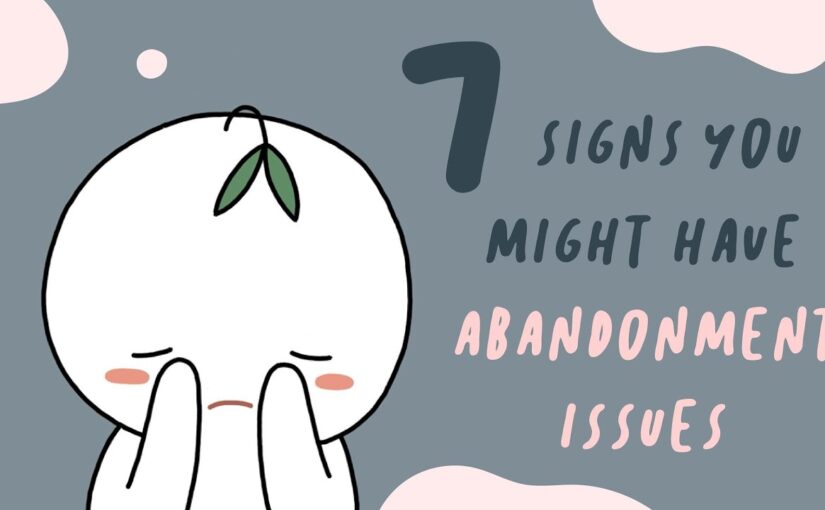
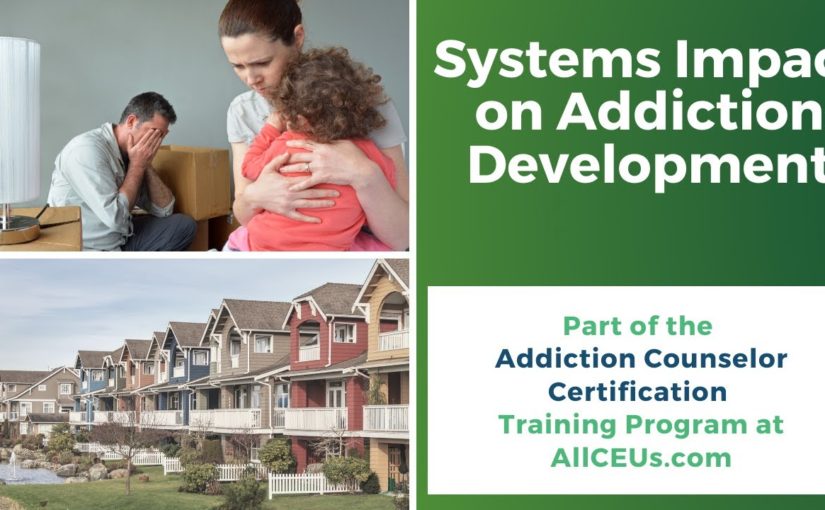
 Is gonna pick up if you are in a household where you know you’re in college and
you’ve got four other roommates and all of your your other roommates tend to be
negative and naysayers you’re either probably going to move or you may that
might start wearing off on you a little bit likewise if they are you know all
kinds of go-getters that can wear off on you too so you know there’s going to be
an impact risk factor is peer and family reinforcement of negative or unhealthy
norms and expectations so if your family says you know people suck they’re
always going to take advantage of you what are you going to take away from
that and is that going to contribute to you probably having difficulties with
trusting and maybe developing depression possibly so we want to look at what kind
of messages is the peer group or family sending to the individual that may
contribute to the development of mood or anxiety disorders early sexual activity
among peers could communicate that well this is the norm so everybody’s doing it
ties to deviant peers and gang involvement you know especially at that
particular group there’s a lot of pressure to conform or there’s a
negative consequences family members who don’t spend much time together and this
could be because parents work a lot this could be because everybody’s you know
involved in all kinds of other stuff but they found that
when families are disengaged the parents tend to miss out on subtle cues when
families are disengaged even if they don’t have children in the mix that
there tends to be a weakening of those bonds supportive bonds so people
are at higher risk for development of depression and anxiety because they
don’t have that you know everybody’s behind me sort of feeling parents who
have trouble keeping track of youth can indicate that the youth may be at risk
for developing substance or more mood disorders lack of clear rules and
consequences you think about even just being at work when there’s a lack of
clear rules and consequences you don’t exactly know what you’re supposed to do
I know for me that creates doodles of anxiety I like manuals and to date
pretty much every job I’ve ever taken I’ve walked in and there hasn’t been a
manual and I’ve been like okay there must be a manual written and that’s been
my first thing now I’m kind of on the structured side so I don’t expect
everybody is that way but most of us tend to experience a little bit of
anxiety about failure about acceptance if we don’t know what’s expected so it’s
important whether it’s a family or a job situation to make sure there’s clear
rules and consequences you know what’s expected and what’s going to happen if
you mess up or if you don’t meet this expectation there also needs to be
consistent expectations and limits you know when people especially children but
a lot of us tested our limits when we were kids and even as adults you know I
know you know going back to working in organizations I would have staff who
would test limits and see how long they could go without turning in a progress
note before I’d be knocking on their door going paperwork it’s natural for
people to kind of test limits especially with stuff they don’t want to do stuff
that’s not rewarding family conflict and abuse can cause a high risk of depression
and anxiety whether adults or children I mean if there’s a
a lot of conflict and chaos it’s exhausting and it can cause a lot of
dysphoric emotions and loss of employment that’s kind of
self-explanatory protective factors close family relationships so as
clinicians we can encourage people to identify who they consider their family
it may not be their blood relatives or their family who are there for them
who can they call it 2:00 in the morning and how can they nurture those
relationships encourage people to develop relationships with peers that
are involved in pro-social activities like hiking or volunteering in the
community consistency of parenting is important in terms of producing children
who are who are stronger healthier more resilient encouraging education and
parents who are actively involved can help prevent future depression because
they’re creating children who can join the workforce and have that
individual capital to prevent depression and anxiety and cope with stress
positively and this is a family protective factor and a peer for
protective factor why because we learn from observation so if our peers cope
with stress positively by prayer or exercise or whatever it is they do and
our family has other positive ways of coping with stress and we’re going to
have a greater venue of stuff to choose from supportive relationships with
caring for adults beyond the immediate family is encouraged so we want
children to grow up being able to interact with teachers coaches with
you know Scout leaders whomever and start seeing that people outside of the
nuclear family are trustworthy sharing and family responsibilities including
chores and decision making and that’s true for children teenagers and even
adults you know if you’re living in the same household it
important that everybody feels like they have a say in what’s happening
and participates in the upkeep of the family environment and family
members are nurturing and support each other and this is one where I tend to
stop and I do a love languages little mini class to help people remember that
we don’t always experience nurturance in the same way so understanding one
another’s love language is really important to be able to nurture in a
way that’s meaningful to that other person peer and family interventions are
designed to identify norms goals and expectations in the family foster family
problem-solving skills so there’s not just one person always fixing it develop
structure and consistency within the family unit promote healthy
relationships and engage peers and family of choice in the recovery process
so if somebody’s already depressed we need to be able to hopefully engage
everybody that’s involved in this person’s immediate environment in
helping them move towards recovery and you know preferably not dragging them
back down so we want to engage them and make sure that people have a supportive
others school and work risk factors lack of clear expectations both academic or
performance-wise and behavioral lack of commitment or sense of belonging at
school or at work if you just kind of go and you feel like a number you punch in
punch out that may not make you feel appreciated which can contribute
to depression and you know just bad feelings high numbers of students
failing academically at school and work translates to high amounts of
turnover if you never know who’s going to get laid off it increases stress and
anxiety and parents and community members who are not actively involved
in keeping kids in school and helping make sure that the workforce workforce
is strong but we want to make sure that people have access to how
when it’s needed we want to make sure that people have access to tutoring in
school if they need it to prevent failing school they have access to
transportation to get to work now those are things those are meta concepts that
are more on the community level but it’s important that as a community member you
know we look at different things that we may be able to participate in advocacy
and say you know it’s really important to get a bus system going I live out
about 30 miles east of Nashville and we must have the
the train that goes from my city out to Nashville so people have
access to more jobs so that was important for us to get past the City
Commission protective factors school and work positive attitudes gotta find a
reason why you’re doing this you know and sometimes it’s hard to find a reason
for algebra but we need to help kids find a reason for that we need to help
adults find a reason for why they’re going to work why are they doing what
they’re doing regular attendance shows you know it is associated with higher
mood less less risk of mood or addictive disorders because you’re able to get up
and do it and interface with people and get that social support hopefully from
your colleague’s high expectations are communicated effectively in setting
and positive social development is encouraged you know whether it’s at work
or at school, there are goals there are things you’ve got to accomplish there
are performance objectives but we also want to encourage morale and positive
social bonding whatever the setting having a positive instructional climate
again whether at work or school, I know we learn things when we’re on the
job we learn things and I don’t want people to feel like they’re having
difficulty like they’re stupid I want people to feel like anything that we
teach them as a challenge and something that may be beneficial down the road
leadership and decision-making opportunities are really important again
for students or employees to prevent burnout keep morale up reduce
anxiety and increase a sense of personal empower
and connection and active involvement for everybody is fostered and the school or
organization is responsive to the student’s needs making sure that in
school in the case of school they have access to tutoring resources it’s a safe
environment for them to be in and the children that are going to that school
have enough food in their bellies you know they can’t learn if they’re
hungry all the time workplace is a little bit different but we still need
to be responsive to people’s needs in terms of you know family requirements
whether they need to if they’re going back to school
shifting schedules a little bit we need to try to work with people instead of
being completely rigid and it’s my way or the highway when possible to
promote the best mental health characteristics of settings in which
relationships are often associated with the development of mood disorders and
addictive behaviors so we want to look at the characteristics of schools that are
they safe are they positive environments are they cheering squads or are they
places where people know they’re gonna go and get thrown under the bus
same thing with workplaces you know when you walk into a place you get most of
we get a sense and you’re either like oh this is a cool place to work or oh I
can’t wait til I can get out of here you know we want to go toward the
other end and neighborhoods when you go into a neighborhood – people take care
of their environment do they or do they have trash strewn all over their lawn
all of these things communicate how people feel about their environment and
generally how they feel about themselves and whether they have the energy to take
care of stuff or they just feel completely disenfranchised and don’t
care more about community risk factors no sense of
connection to the community neighborhood disorganization rapid changes high
unemployment a lack of strong social institutions lack of monitoring of youths
activities imbalanced media portrayals of safety health and appropriate
behavior misleading advertising and alcohol or drugs readily available
a lot of stuff we do we’re not going to be able to affect on the community level
so much but we’re gonna hit them real quick we want to improve the climate
process and policies within community schools and workplaces to make it safe and
promote positive health behaviors prevention strategies are designed to
reduce social isolation reduce and address stigma increase awareness of
local recovery models you know who’s out there that has recovered and can serve
as a role model improve economic and housing opportunities so people have a
house a safe roof over their head and they can you know earn money and feel
good about themselves increasing the accuracy and improving the positivity of
media messages and increasing physical and financial ability availability of
recovery so like I said I live in a little town so it’s nice that we have
a community mental health center here so people don’t have to rely on going into
Nashville but also making sure that services are financially available
whether you have a free clinic once a month or you know make sure you’ll you
take Medicaid but there are still a lot of people who have no insurance so where do
they go the socio-ecological model identifies
how the end the individual impacts and is impacted by not only his own
characteristics but also those of family peers community and culture prevention
takes the form of preventing the problem preventing the worsening of the problem and
preventing associated fallout like I said as clinicians a lot of what we’re
going to do is target the individual providing them with resiliency skills to deal
with some of this adversity that might be around them and to help them sort
through some of those media messages and go yeah
that’s not even true you know if I drink this vodka I’m not suddenly going to
have 14 supermodels hanging on me or whatever it is that’s being communicated
so encouraging people to be informed and Wylie consumers any change in the
the system will affect other parts of this system so if it’s a
positive change is probably going to have positive changes negative has
negative changes addressing addictive and mood disorder behaviors require a
the multi-pronged approach we need to look at the individual and you know provide
provide as many skills as possible there because that’s where we’re going to have
a lot of our impact especially in prevention but we also need to
realize that this person resides within a family you know whether they live
alone which sometimes is less problematic or they live in a household
with other people, we need to make sure that where they lay their heads at night
where they spend their non-working hours feel safe and is conducive to recovery
where they work or go to school also needs to feel safe and be conducive to
recovery and that’s part of the community so we need to kind of look at
these areas and if they aren’t safe or they don’t feel safe or aren’t conducive
to recovery, we need to help people how to figure out how they can fix that or
address it like I said they may not be able to move so what can you do to set
some boundaries to create as much safety as you can how can you do this and there
are a lot of different techniques that I’m sure you already have that you used
to help people but it’s important again not to just focus on the individual
because they don’t live in a bubble we need to look at everything right and are
Are there any questions now we have or I have added a Wednesday
class, so you don’t don’t have to come but if you have unlimited
membership same time same station Wednesday so Tuesday Wednesday and
Thursday we have a class from noon. CST 1 p.m. EST 2 for an hour all righty I will talk to y’all maybe
tomorrow maybe on Thursday have a great day if you enjoy this podcast please like
and subscribe either in your podcast player or on YouTube you can attend and
participate in our live webinars with Doctor Snipes by subscribing at all CEUs
comm slash counselor toolbox this episode has been brought to you in part
by all CEUs com providing 24/7 multimedia continuing education and pre
certification training to counselors therapists and nurses since 2006 use
coupon code consular toolbox to get a 20% discount off your order this month.
Is gonna pick up if you are in a household where you know you’re in college and
you’ve got four other roommates and all of your your other roommates tend to be
negative and naysayers you’re either probably going to move or you may that
might start wearing off on you a little bit likewise if they are you know all
kinds of go-getters that can wear off on you too so you know there’s going to be
an impact risk factor is peer and family reinforcement of negative or unhealthy
norms and expectations so if your family says you know people suck they’re
always going to take advantage of you what are you going to take away from
that and is that going to contribute to you probably having difficulties with
trusting and maybe developing depression possibly so we want to look at what kind
of messages is the peer group or family sending to the individual that may
contribute to the development of mood or anxiety disorders early sexual activity
among peers could communicate that well this is the norm so everybody’s doing it
ties to deviant peers and gang involvement you know especially at that
particular group there’s a lot of pressure to conform or there’s a
negative consequences family members who don’t spend much time together and this
could be because parents work a lot this could be because everybody’s you know
involved in all kinds of other stuff but they found that
when families are disengaged the parents tend to miss out on subtle cues when
families are disengaged even if they don’t have children in the mix that
there tends to be a weakening of those bonds supportive bonds so people
are at higher risk for development of depression and anxiety because they
don’t have that you know everybody’s behind me sort of feeling parents who
have trouble keeping track of youth can indicate that the youth may be at risk
for developing substance or more mood disorders lack of clear rules and
consequences you think about even just being at work when there’s a lack of
clear rules and consequences you don’t exactly know what you’re supposed to do
I know for me that creates doodles of anxiety I like manuals and to date
pretty much every job I’ve ever taken I’ve walked in and there hasn’t been a
manual and I’ve been like okay there must be a manual written and that’s been
my first thing now I’m kind of on the structured side so I don’t expect
everybody is that way but most of us tend to experience a little bit of
anxiety about failure about acceptance if we don’t know what’s expected so it’s
important whether it’s a family or a job situation to make sure there’s clear
rules and consequences you know what’s expected and what’s going to happen if
you mess up or if you don’t meet this expectation there also needs to be
consistent expectations and limits you know when people especially children but
a lot of us tested our limits when we were kids and even as adults you know I
know you know going back to working in organizations I would have staff who
would test limits and see how long they could go without turning in a progress
note before I’d be knocking on their door going paperwork it’s natural for
people to kind of test limits especially with stuff they don’t want to do stuff
that’s not rewarding family conflict and abuse can cause a high risk of depression
and anxiety whether adults or children I mean if there’s a
a lot of conflict and chaos it’s exhausting and it can cause a lot of
dysphoric emotions and loss of employment that’s kind of
self-explanatory protective factors close family relationships so as
clinicians we can encourage people to identify who they consider their family
it may not be their blood relatives or their family who are there for them
who can they call it 2:00 in the morning and how can they nurture those
relationships encourage people to develop relationships with peers that
are involved in pro-social activities like hiking or volunteering in the
community consistency of parenting is important in terms of producing children
who are who are stronger healthier more resilient encouraging education and
parents who are actively involved can help prevent future depression because
they’re creating children who can join the workforce and have that
individual capital to prevent depression and anxiety and cope with stress
positively and this is a family protective factor and a peer for
protective factor why because we learn from observation so if our peers cope
with stress positively by prayer or exercise or whatever it is they do and
our family has other positive ways of coping with stress and we’re going to
have a greater venue of stuff to choose from supportive relationships with
caring for adults beyond the immediate family is encouraged so we want
children to grow up being able to interact with teachers coaches with
you know Scout leaders whomever and start seeing that people outside of the
nuclear family are trustworthy sharing and family responsibilities including
chores and decision making and that’s true for children teenagers and even
adults you know if you’re living in the same household it
important that everybody feels like they have a say in what’s happening
and participates in the upkeep of the family environment and family
members are nurturing and support each other and this is one where I tend to
stop and I do a love languages little mini class to help people remember that
we don’t always experience nurturance in the same way so understanding one
another’s love language is really important to be able to nurture in a
way that’s meaningful to that other person peer and family interventions are
designed to identify norms goals and expectations in the family foster family
problem-solving skills so there’s not just one person always fixing it develop
structure and consistency within the family unit promote healthy
relationships and engage peers and family of choice in the recovery process
so if somebody’s already depressed we need to be able to hopefully engage
everybody that’s involved in this person’s immediate environment in
helping them move towards recovery and you know preferably not dragging them
back down so we want to engage them and make sure that people have a supportive
others school and work risk factors lack of clear expectations both academic or
performance-wise and behavioral lack of commitment or sense of belonging at
school or at work if you just kind of go and you feel like a number you punch in
punch out that may not make you feel appreciated which can contribute
to depression and you know just bad feelings high numbers of students
failing academically at school and work translates to high amounts of
turnover if you never know who’s going to get laid off it increases stress and
anxiety and parents and community members who are not actively involved
in keeping kids in school and helping make sure that the workforce workforce
is strong but we want to make sure that people have access to how
when it’s needed we want to make sure that people have access to tutoring in
school if they need it to prevent failing school they have access to
transportation to get to work now those are things those are meta concepts that
are more on the community level but it’s important that as a community member you
know we look at different things that we may be able to participate in advocacy
and say you know it’s really important to get a bus system going I live out
about 30 miles east of Nashville and we must have the
the train that goes from my city out to Nashville so people have
access to more jobs so that was important for us to get past the City
Commission protective factors school and work positive attitudes gotta find a
reason why you’re doing this you know and sometimes it’s hard to find a reason
for algebra but we need to help kids find a reason for that we need to help
adults find a reason for why they’re going to work why are they doing what
they’re doing regular attendance shows you know it is associated with higher
mood less less risk of mood or addictive disorders because you’re able to get up
and do it and interface with people and get that social support hopefully from
your colleague’s high expectations are communicated effectively in setting
and positive social development is encouraged you know whether it’s at work
or at school, there are goals there are things you’ve got to accomplish there
are performance objectives but we also want to encourage morale and positive
social bonding whatever the setting having a positive instructional climate
again whether at work or school, I know we learn things when we’re on the
job we learn things and I don’t want people to feel like they’re having
difficulty like they’re stupid I want people to feel like anything that we
teach them as a challenge and something that may be beneficial down the road
leadership and decision-making opportunities are really important again
for students or employees to prevent burnout keep morale up reduce
anxiety and increase a sense of personal empower
and connection and active involvement for everybody is fostered and the school or
organization is responsive to the student’s needs making sure that in
school in the case of school they have access to tutoring resources it’s a safe
environment for them to be in and the children that are going to that school
have enough food in their bellies you know they can’t learn if they’re
hungry all the time workplace is a little bit different but we still need
to be responsive to people’s needs in terms of you know family requirements
whether they need to if they’re going back to school
shifting schedules a little bit we need to try to work with people instead of
being completely rigid and it’s my way or the highway when possible to
promote the best mental health characteristics of settings in which
relationships are often associated with the development of mood disorders and
addictive behaviors so we want to look at the characteristics of schools that are
they safe are they positive environments are they cheering squads or are they
places where people know they’re gonna go and get thrown under the bus
same thing with workplaces you know when you walk into a place you get most of
we get a sense and you’re either like oh this is a cool place to work or oh I
can’t wait til I can get out of here you know we want to go toward the
other end and neighborhoods when you go into a neighborhood – people take care
of their environment do they or do they have trash strewn all over their lawn
all of these things communicate how people feel about their environment and
generally how they feel about themselves and whether they have the energy to take
care of stuff or they just feel completely disenfranchised and don’t
care more about community risk factors no sense of
connection to the community neighborhood disorganization rapid changes high
unemployment a lack of strong social institutions lack of monitoring of youths
activities imbalanced media portrayals of safety health and appropriate
behavior misleading advertising and alcohol or drugs readily available
a lot of stuff we do we’re not going to be able to affect on the community level
so much but we’re gonna hit them real quick we want to improve the climate
process and policies within community schools and workplaces to make it safe and
promote positive health behaviors prevention strategies are designed to
reduce social isolation reduce and address stigma increase awareness of
local recovery models you know who’s out there that has recovered and can serve
as a role model improve economic and housing opportunities so people have a
house a safe roof over their head and they can you know earn money and feel
good about themselves increasing the accuracy and improving the positivity of
media messages and increasing physical and financial ability availability of
recovery so like I said I live in a little town so it’s nice that we have
a community mental health center here so people don’t have to rely on going into
Nashville but also making sure that services are financially available
whether you have a free clinic once a month or you know make sure you’ll you
take Medicaid but there are still a lot of people who have no insurance so where do
they go the socio-ecological model identifies
how the end the individual impacts and is impacted by not only his own
characteristics but also those of family peers community and culture prevention
takes the form of preventing the problem preventing the worsening of the problem and
preventing associated fallout like I said as clinicians a lot of what we’re
going to do is target the individual providing them with resiliency skills to deal
with some of this adversity that might be around them and to help them sort
through some of those media messages and go yeah
that’s not even true you know if I drink this vodka I’m not suddenly going to
have 14 supermodels hanging on me or whatever it is that’s being communicated
so encouraging people to be informed and Wylie consumers any change in the
the system will affect other parts of this system so if it’s a
positive change is probably going to have positive changes negative has
negative changes addressing addictive and mood disorder behaviors require a
the multi-pronged approach we need to look at the individual and you know provide
provide as many skills as possible there because that’s where we’re going to have
a lot of our impact especially in prevention but we also need to
realize that this person resides within a family you know whether they live
alone which sometimes is less problematic or they live in a household
with other people, we need to make sure that where they lay their heads at night
where they spend their non-working hours feel safe and is conducive to recovery
where they work or go to school also needs to feel safe and be conducive to
recovery and that’s part of the community so we need to kind of look at
these areas and if they aren’t safe or they don’t feel safe or aren’t conducive
to recovery, we need to help people how to figure out how they can fix that or
address it like I said they may not be able to move so what can you do to set
some boundaries to create as much safety as you can how can you do this and there
are a lot of different techniques that I’m sure you already have that you used
to help people but it’s important again not to just focus on the individual
because they don’t live in a bubble we need to look at everything right and are
Are there any questions now we have or I have added a Wednesday
class, so you don’t don’t have to come but if you have unlimited
membership same time same station Wednesday so Tuesday Wednesday and
Thursday we have a class from noon. CST 1 p.m. EST 2 for an hour all righty I will talk to y’all maybe
tomorrow maybe on Thursday have a great day if you enjoy this podcast please like
and subscribe either in your podcast player or on YouTube you can attend and
participate in our live webinars with Doctor Snipes by subscribing at all CEUs
comm slash counselor toolbox this episode has been brought to you in part
by all CEUs com providing 24/7 multimedia continuing education and pre
certification training to counselors therapists and nurses since 2006 use
coupon code consular toolbox to get a 20% discount off your order this month.
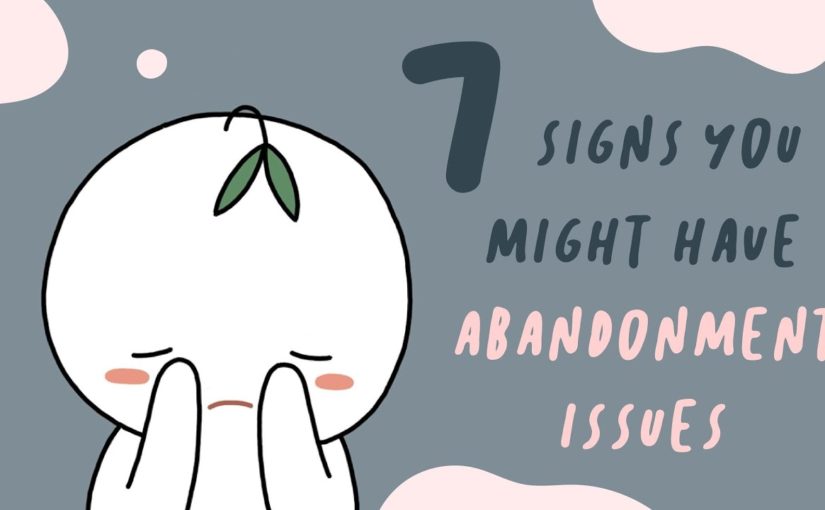
 Five: you look for reasons to leave. Do you always look for reasons to leave in fear of getting too attached to someone? You hold your loved ones to unrealistically high standards and you only focus on their flaws. You don’t give them any room for mistakes. You do this knowing that they’re bound to disappoint you. And when they fail to meet your expectations, you use it as an excuse to give up and leave. Six: you move on too quickly Do you have difficulty forming meaningful relationships that last because of a deep-seated fear of abandonment? When you cycle through relationships one after another and move on too quickly, you’re not allowing yourself the time and space to deal with the emotional fallout. Instead, you dive into something new and exciting to distract yourself. You never want to be alone, because it would force you to confront the personal issues you’ve been repressing for so long. And number 7… you cling to unhealthy relationships Do you find yourself gravitating towards all the wrong people? Have you stayed with someone knowing they’re bad for you? The trauma of being abandoned, especially at a young age, can stay with you for a long time. And since we’re all hard-wired to recreate our early childhood experiences for comfort and familiarity, your childhood taught you the wrong things about love. It’s not uncommon for you to be drawn to people who treat you poorly. Do you relate to any of the signs mentioned here? I know I did… Is a fear of abandonment harming your relationships and keeping you from being happy? Let us know in the comments below. If you found this video helpful, be sure to like and share this video with those who might benefit from it! Don’t forget to subscribe to Psych2go for more videos! Thanks for watching, and we’ll see you in the next one!
Five: you look for reasons to leave. Do you always look for reasons to leave in fear of getting too attached to someone? You hold your loved ones to unrealistically high standards and you only focus on their flaws. You don’t give them any room for mistakes. You do this knowing that they’re bound to disappoint you. And when they fail to meet your expectations, you use it as an excuse to give up and leave. Six: you move on too quickly Do you have difficulty forming meaningful relationships that last because of a deep-seated fear of abandonment? When you cycle through relationships one after another and move on too quickly, you’re not allowing yourself the time and space to deal with the emotional fallout. Instead, you dive into something new and exciting to distract yourself. You never want to be alone, because it would force you to confront the personal issues you’ve been repressing for so long. And number 7… you cling to unhealthy relationships Do you find yourself gravitating towards all the wrong people? Have you stayed with someone knowing they’re bad for you? The trauma of being abandoned, especially at a young age, can stay with you for a long time. And since we’re all hard-wired to recreate our early childhood experiences for comfort and familiarity, your childhood taught you the wrong things about love. It’s not uncommon for you to be drawn to people who treat you poorly. Do you relate to any of the signs mentioned here? I know I did… Is a fear of abandonment harming your relationships and keeping you from being happy? Let us know in the comments below. If you found this video helpful, be sure to like and share this video with those who might benefit from it! Don’t forget to subscribe to Psych2go for more videos! Thanks for watching, and we’ll see you in the next one!
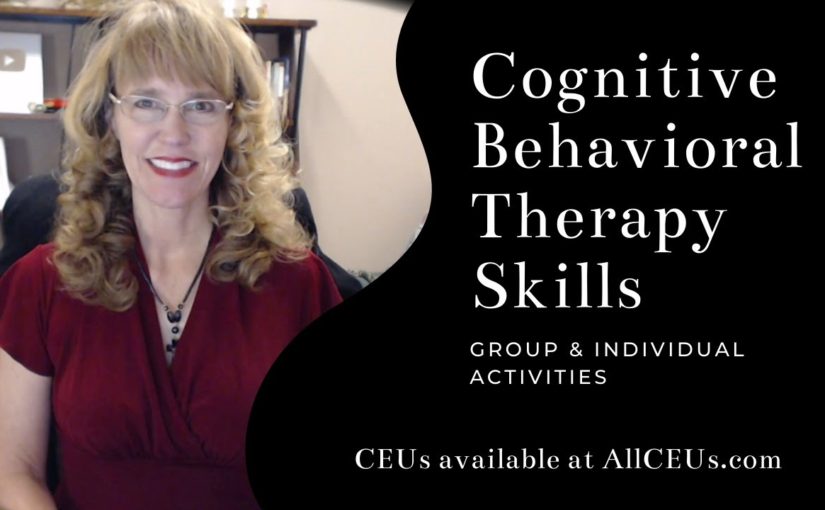
 If it was your best friend’s experience your best friend came to you and said I
just got into such-and-such college would you say awesome or would you say
anybody can get in there how would that go ask them what is scary about
accepting these positive things that you might have had an
accomplishment for some people it means that it might mean other people expect
more of them for other people they just don’t know how to accept the positive
They don’t know how to accept compliments they don’t know how to be
the center of attention and they don’t like it and then we want to look at why
that is sometimes we disqualify the positive because it fails to meet
someone else’s standards so as people might that be true here you know I know
When I was growing up and going through college and going through school and
everything got my doctorate but I will always not being not
a real doctor because a Ph.D. is not an MD and I’m like really
So is it somebody else’s standards or can I feel good about having a Ph.D. egocentrism My perspective is the only
perspective I’ll being egocentric but it doesn’t work
most of the time so encouraging people to take alternate perspectives
Maybe you’re texting with someone and they say something that is not what you
interpret as not the nicest thing and this happens in text messages a lot and
they get upset now an egocentric thinking error would say that purse is
just grumpy today Someone who’s taking other perspectives would stop and go
back and read the text and go I wonder if maybe this could have been taken some
other another you know obvious reaction is not what I intended
So egocentrism if you hold on to that I don’t understand anybody else because
You know I don’t see a problem with anything personalizing and mind-reading This is when you assume that everybody’s
frowning because of something you did your boss walks down the hallway
and looks at you and grimaces and continues to walk on oh I must have done
something wrong No maybe he just got out of his senior management meeting that
was five hours long and he’s got to go to the bathroom you know there could be
a hundred different explanations for why that happened so encourage clients to
ask themselves what some alternate explanations for this event that are
doesn’t involve me you know why this might have happened if they hold
on to that, I must have done something wrong but as soon as their boss calls
them up and goes hey can you come to my office for a second you know where their
thoughts are going to go I’m getting fired I’m going to get laid off I don’t
know what it was that I did wrong but he walked by me two weeks ago in the
hallway and grimaced and I’m just I’m the worst person in the whole world
But where did that come from so encouraging people to not necessarily
assume they know what’s going on in someone else’s mind and not
automatically attributing every person’s negative behavior to something they did
How often and then ask them how often has it been about you
now think about the last 10 times you’ve taken something personally how many of
Those 10 times has it been about something you did versus something with
the other person then the availability heuristic remembering what’s most
prominent in your mind so asking clients what the facts ah the most obvious
One that we talk about is plane crashes You know it is very dangerous to fly on a
plane because you hear about all those plane crashes well yeah you hear about
the airlines crashes but don’t hear about the 20,000 every day that land
safely so you remember it and it seems more dangerous because that’s what is in
your mind that’s what is available to you that’s what you’ve based your
thought processes on because maybe you didn’t know that 20,000 planes or more
fly and land just perfectly every day this can also be true with people
remembering what’s most prominent in your mind sometimes and this can be very
very true in domestically violent relationships if somebody falls in love
with someone and that person is just the greatest person since sliced bread for
the first four months and then the cycle starts and there’s this little tiny
a sliver of the honeymoon period after the battering cycle and the person’s like
That’s the person I fell in love with that’s what I remember and they try to
focus on that that’s most prominent in their mind and they ignore the rest of
the stuff so we need to encourage people to look objectively at the facts magnifying high and
low probability outcomes what are the chances that this is going to happen how
Many clients have worked with have gone to the doctor and gotten into a
physical or get a test run and then the doctor had to call them back and
This could be true for you too and the doctor had to call them back two or
Three days later when the tests came back from the lab and that whole three
days they were just in a panic because they
were afraid they were going to get some terminal diagnosis so thinking about
high and low probability outcomes another instance or example of
magnification is somebody that thinks this is the end of the world whatever it
I think I’ve told you before my little story about um tripping when I
was walking down the hall at work and falling and yeah it was embarrassing my
folders went everywhere and yeah but in that big scheme of things will it matter
That much from now you know are people going to think Oh she is such a clutch she
must be a ditz too no I mean they may have thought that at that time I don’t
know but you know in six months nobody’s going to remember and then ask them in
the past when something like this has happened when you’ve had to get a test
done and you’ve had to wait on results or if you’ve done something that was
embarrassing and you didn’t think you thought everybody was going to remember
it forever how did you tolerate it how did you learn to deal with it building
on those strengths that they already have all-or-nothing thinking errors
These are things like love versus hate I love them or I hate them it’s all or
Nothing she does this all the time or she never does it if I’m going to do it
I’m going to do it perfectly or I’m not going to do it at all thank you all good
intentions or all bad intentions you know sometimes we do things with good
intentions that have some bad repercussions so did we do it with all
Bad intentions are all good intentions and the answer is neither most of the
time life is kind of in that middle-ground gray area encouraging clients to
Look and find examples where something hasn’t been one of the polls when have
they done something that they’re proud of that wasn’t perfect or when again
When has somebody else done something that they were proud of that wasn’t
perfect remembering that with availability
heuristic remembering how often something happens and how long it’s
been since you’ve seen that behavior and remember that sometimes good times are
amazing but how frequent are they compared with the bad times another thinking error is a belief in a
just world or a fallacy of fairness I just asked clients to identify for good
people you know who’ve had bad things happen and in in reality we all have bad
things happen good people do bad people do in between people do attributional
errors and this is a pet of mine you know labeling yourself is not a behavior so
global versus specific and I am stupid versus I’m stupid at math I don’t have
good math skills it’s not about me it’s about the skills I can change skills
stable I am and I always will be versus it’s something I can change it’s
something I can learn internally It’s about me as a person versus it’s about a
skill deficit or something I could learn or change and there’s you know lots of
information on attributions out there on the internet if you need a refresher on
it but we find that a lot of people who have dysphoria have negative global
stable internal attributions so questions for clients remember the
beliefs equal thoughts and facts plus personal interpretation another way of
saying it is reality is 10% perception is 10% reality and 90% interpretation so
what are the facts for and against my belief is the belief based on facts or
Feelings Does the belief focus on one aspect or the whole situation Does the
belief seem to use any thinking errors what are alternate explanations what
Would you tell your child or best friend if they had this belief how would you
want someone to tell what would you want someone to tell you about this belief so
If you’re telling somebody about this what are you hoping they’re going to say
in return and finally, how is this belief moving you toward what and who is
important to you or moving you away from what or who is important to you now they
can do a worksheet and have all of these or you can pick one or two of these
questions that are most salient for your clients but they can have kind of at
their fingertips so as they’re going through the day and something happens
They can ask themselves ok what’s an alternate explanation Or you know
Whatever it is this salient for that client’s irrational thoughts how do these
thoughts impact the client’s emotions health relationships and perceptions of
the world you know this is what we want to ask them How is this thought
impacting you globally how may this thought have been helpful in the past
Where did it come from How does it make sense from when you formed it in the
past when you’re dealing with it ask the person if the thought is bringing you
closer to those that are important Are there any examples of this thought or
belief not being true and how can the statement be made less global less
all-encompassing so it’s about a specific incident a specific situation
less stable which means you can change it and less internal which means it’s
not about who you are as a person but maybe something that you do or a skill
that you have so we’re going to go through some of these thoughts real
Quickly here mistakes are never acceptable and if I make one it means
that I’m incompetent well never is kind of stable and I am incompetent is kind
of global, that’s also that extreme all-or-nothing thinking so you can see
where these cognitive distortions end up leading to unhelpful beliefs
When somebody disagrees with me it’s a personal attack Well there’s
Personalization If I ever heard it before maybe it’s not about you may be
They’re having a bad day and you just happen to be the unlucky target or maybe
they’re disagreeing with you because they have a different point of view and
It’s not a personal attack it’s just their point of view If someone
criticizes or rejects me there must be something wrong with me
personalization all-or-nothing thinking global stable and internal something
wrong with me as a person to feel good about myself others must approve of me
Now this is one we’ve talked about external validation before and we can’t
control other people to feel good about yourself how can you do that
Besides necessarily requiring other people to approve of you to be
content in life I must be liked by all people Wow I’ve never met anybody who’s
liked by all people I’ve never even met anybody who’s been hated by all people
but it’s important to help clients see how this is dramatic to say all
people and for them to be content everybody has to like them
I mean I like to be liked but if everybody doesn’t like me you know
That’s pretty understandable My true value as an individual depends on what
others think of me I would challenge this one this is all you know
Also very personally I would challenge people to look at and say it
so your child’s value as an individual depends on what other people think of
Most people would say no but the perspective thing nothing ever turns
out the way you want it to okay all-or-nothing thinking and probably
availability heuristic if something bad just happened then they may be focusing
on that which causes them to focus on all the other bad things in the past
that have happened not to focus on that is okay you know bad thing
happen but look at all these good things I won’t try anything new unless I will
be good at it this fear of failure fear of rejection
It just really paralyzes a lot of people when they get stuck with that thinking
the area that they have to be perfect I am in total control of anything bad that
happens is my fault well that’s egocentric and personal if
They think they’re in total control that’s their perception of how the world
Do they think if they’ve got everybody on marionette strings anything
bad in the world that happens is their fault how powerful are they
I feel happy about uh if I feel happy about life something will go wrong
It happens sometimes but let’s look at times when you’ve been happy that
something hasn’t gone wrong you know let’s get rid of that all-or-nothing
thinking it’s not my fault my life didn’t go the way I wanted could be true
but it seems like that’s making you unhappy so what do we do about that if
I’m not in an intimate relationship I’m alone
No, again that’s pretty extreme I’m either in an intimate relationship or I
am alone and a loner and you know it’s just me and my 17 cats which follows
with there’s no gray area so encouraging people to look at what these
beliefs are saying important thoughts impact behaviors and emotional and
Physical reactions emotional and physical reactions impact thoughts and
interpretations of events so if you do something and it’s pleasurable
and you have a great physical reaction you know let’s take bungee jumping or
Skydiving if you go out there and it’s scary but you do it and you’re just like
Whoa what a rush Your interpretation of that is probably going to be good which
means you’ll probably do it again if you go out there and it’s just the most
horrible experience you’ve ever had you’re probably not going to do it again
and your interpretation of it is going to be not good which is going to make it
hard to understand why other people would do it irrational
thinking patterns are often caused by cognitive distortions so let’s just look
back at some of those because there are a lot fewer cognitive distortions or
general ways of thinking about the world then there are thinking errors because
There are lots and lots of thinking errors Cognitive distortions are often schemas
which were formed based on faulty inaccurate or immature knowledge or
understanding and by identifying the thoughts of the hecklers you know the
automatic tapes that maintain our unhappiness the person can choose
whether to accept those thoughts or change them.
If it was your best friend’s experience your best friend came to you and said I
just got into such-and-such college would you say awesome or would you say
anybody can get in there how would that go ask them what is scary about
accepting these positive things that you might have had an
accomplishment for some people it means that it might mean other people expect
more of them for other people they just don’t know how to accept the positive
They don’t know how to accept compliments they don’t know how to be
the center of attention and they don’t like it and then we want to look at why
that is sometimes we disqualify the positive because it fails to meet
someone else’s standards so as people might that be true here you know I know
When I was growing up and going through college and going through school and
everything got my doctorate but I will always not being not
a real doctor because a Ph.D. is not an MD and I’m like really
So is it somebody else’s standards or can I feel good about having a Ph.D. egocentrism My perspective is the only
perspective I’ll being egocentric but it doesn’t work
most of the time so encouraging people to take alternate perspectives
Maybe you’re texting with someone and they say something that is not what you
interpret as not the nicest thing and this happens in text messages a lot and
they get upset now an egocentric thinking error would say that purse is
just grumpy today Someone who’s taking other perspectives would stop and go
back and read the text and go I wonder if maybe this could have been taken some
other another you know obvious reaction is not what I intended
So egocentrism if you hold on to that I don’t understand anybody else because
You know I don’t see a problem with anything personalizing and mind-reading This is when you assume that everybody’s
frowning because of something you did your boss walks down the hallway
and looks at you and grimaces and continues to walk on oh I must have done
something wrong No maybe he just got out of his senior management meeting that
was five hours long and he’s got to go to the bathroom you know there could be
a hundred different explanations for why that happened so encourage clients to
ask themselves what some alternate explanations for this event that are
doesn’t involve me you know why this might have happened if they hold
on to that, I must have done something wrong but as soon as their boss calls
them up and goes hey can you come to my office for a second you know where their
thoughts are going to go I’m getting fired I’m going to get laid off I don’t
know what it was that I did wrong but he walked by me two weeks ago in the
hallway and grimaced and I’m just I’m the worst person in the whole world
But where did that come from so encouraging people to not necessarily
assume they know what’s going on in someone else’s mind and not
automatically attributing every person’s negative behavior to something they did
How often and then ask them how often has it been about you
now think about the last 10 times you’ve taken something personally how many of
Those 10 times has it been about something you did versus something with
the other person then the availability heuristic remembering what’s most
prominent in your mind so asking clients what the facts ah the most obvious
One that we talk about is plane crashes You know it is very dangerous to fly on a
plane because you hear about all those plane crashes well yeah you hear about
the airlines crashes but don’t hear about the 20,000 every day that land
safely so you remember it and it seems more dangerous because that’s what is in
your mind that’s what is available to you that’s what you’ve based your
thought processes on because maybe you didn’t know that 20,000 planes or more
fly and land just perfectly every day this can also be true with people
remembering what’s most prominent in your mind sometimes and this can be very
very true in domestically violent relationships if somebody falls in love
with someone and that person is just the greatest person since sliced bread for
the first four months and then the cycle starts and there’s this little tiny
a sliver of the honeymoon period after the battering cycle and the person’s like
That’s the person I fell in love with that’s what I remember and they try to
focus on that that’s most prominent in their mind and they ignore the rest of
the stuff so we need to encourage people to look objectively at the facts magnifying high and
low probability outcomes what are the chances that this is going to happen how
Many clients have worked with have gone to the doctor and gotten into a
physical or get a test run and then the doctor had to call them back and
This could be true for you too and the doctor had to call them back two or
Three days later when the tests came back from the lab and that whole three
days they were just in a panic because they
were afraid they were going to get some terminal diagnosis so thinking about
high and low probability outcomes another instance or example of
magnification is somebody that thinks this is the end of the world whatever it
I think I’ve told you before my little story about um tripping when I
was walking down the hall at work and falling and yeah it was embarrassing my
folders went everywhere and yeah but in that big scheme of things will it matter
That much from now you know are people going to think Oh she is such a clutch she
must be a ditz too no I mean they may have thought that at that time I don’t
know but you know in six months nobody’s going to remember and then ask them in
the past when something like this has happened when you’ve had to get a test
done and you’ve had to wait on results or if you’ve done something that was
embarrassing and you didn’t think you thought everybody was going to remember
it forever how did you tolerate it how did you learn to deal with it building
on those strengths that they already have all-or-nothing thinking errors
These are things like love versus hate I love them or I hate them it’s all or
Nothing she does this all the time or she never does it if I’m going to do it
I’m going to do it perfectly or I’m not going to do it at all thank you all good
intentions or all bad intentions you know sometimes we do things with good
intentions that have some bad repercussions so did we do it with all
Bad intentions are all good intentions and the answer is neither most of the
time life is kind of in that middle-ground gray area encouraging clients to
Look and find examples where something hasn’t been one of the polls when have
they done something that they’re proud of that wasn’t perfect or when again
When has somebody else done something that they were proud of that wasn’t
perfect remembering that with availability
heuristic remembering how often something happens and how long it’s
been since you’ve seen that behavior and remember that sometimes good times are
amazing but how frequent are they compared with the bad times another thinking error is a belief in a
just world or a fallacy of fairness I just asked clients to identify for good
people you know who’ve had bad things happen and in in reality we all have bad
things happen good people do bad people do in between people do attributional
errors and this is a pet of mine you know labeling yourself is not a behavior so
global versus specific and I am stupid versus I’m stupid at math I don’t have
good math skills it’s not about me it’s about the skills I can change skills
stable I am and I always will be versus it’s something I can change it’s
something I can learn internally It’s about me as a person versus it’s about a
skill deficit or something I could learn or change and there’s you know lots of
information on attributions out there on the internet if you need a refresher on
it but we find that a lot of people who have dysphoria have negative global
stable internal attributions so questions for clients remember the
beliefs equal thoughts and facts plus personal interpretation another way of
saying it is reality is 10% perception is 10% reality and 90% interpretation so
what are the facts for and against my belief is the belief based on facts or
Feelings Does the belief focus on one aspect or the whole situation Does the
belief seem to use any thinking errors what are alternate explanations what
Would you tell your child or best friend if they had this belief how would you
want someone to tell what would you want someone to tell you about this belief so
If you’re telling somebody about this what are you hoping they’re going to say
in return and finally, how is this belief moving you toward what and who is
important to you or moving you away from what or who is important to you now they
can do a worksheet and have all of these or you can pick one or two of these
questions that are most salient for your clients but they can have kind of at
their fingertips so as they’re going through the day and something happens
They can ask themselves ok what’s an alternate explanation Or you know
Whatever it is this salient for that client’s irrational thoughts how do these
thoughts impact the client’s emotions health relationships and perceptions of
the world you know this is what we want to ask them How is this thought
impacting you globally how may this thought have been helpful in the past
Where did it come from How does it make sense from when you formed it in the
past when you’re dealing with it ask the person if the thought is bringing you
closer to those that are important Are there any examples of this thought or
belief not being true and how can the statement be made less global less
all-encompassing so it’s about a specific incident a specific situation
less stable which means you can change it and less internal which means it’s
not about who you are as a person but maybe something that you do or a skill
that you have so we’re going to go through some of these thoughts real
Quickly here mistakes are never acceptable and if I make one it means
that I’m incompetent well never is kind of stable and I am incompetent is kind
of global, that’s also that extreme all-or-nothing thinking so you can see
where these cognitive distortions end up leading to unhelpful beliefs
When somebody disagrees with me it’s a personal attack Well there’s
Personalization If I ever heard it before maybe it’s not about you may be
They’re having a bad day and you just happen to be the unlucky target or maybe
they’re disagreeing with you because they have a different point of view and
It’s not a personal attack it’s just their point of view If someone
criticizes or rejects me there must be something wrong with me
personalization all-or-nothing thinking global stable and internal something
wrong with me as a person to feel good about myself others must approve of me
Now this is one we’ve talked about external validation before and we can’t
control other people to feel good about yourself how can you do that
Besides necessarily requiring other people to approve of you to be
content in life I must be liked by all people Wow I’ve never met anybody who’s
liked by all people I’ve never even met anybody who’s been hated by all people
but it’s important to help clients see how this is dramatic to say all
people and for them to be content everybody has to like them
I mean I like to be liked but if everybody doesn’t like me you know
That’s pretty understandable My true value as an individual depends on what
others think of me I would challenge this one this is all you know
Also very personally I would challenge people to look at and say it
so your child’s value as an individual depends on what other people think of
Most people would say no but the perspective thing nothing ever turns
out the way you want it to okay all-or-nothing thinking and probably
availability heuristic if something bad just happened then they may be focusing
on that which causes them to focus on all the other bad things in the past
that have happened not to focus on that is okay you know bad thing
happen but look at all these good things I won’t try anything new unless I will
be good at it this fear of failure fear of rejection
It just really paralyzes a lot of people when they get stuck with that thinking
the area that they have to be perfect I am in total control of anything bad that
happens is my fault well that’s egocentric and personal if
They think they’re in total control that’s their perception of how the world
Do they think if they’ve got everybody on marionette strings anything
bad in the world that happens is their fault how powerful are they
I feel happy about uh if I feel happy about life something will go wrong
It happens sometimes but let’s look at times when you’ve been happy that
something hasn’t gone wrong you know let’s get rid of that all-or-nothing
thinking it’s not my fault my life didn’t go the way I wanted could be true
but it seems like that’s making you unhappy so what do we do about that if
I’m not in an intimate relationship I’m alone
No, again that’s pretty extreme I’m either in an intimate relationship or I
am alone and a loner and you know it’s just me and my 17 cats which follows
with there’s no gray area so encouraging people to look at what these
beliefs are saying important thoughts impact behaviors and emotional and
Physical reactions emotional and physical reactions impact thoughts and
interpretations of events so if you do something and it’s pleasurable
and you have a great physical reaction you know let’s take bungee jumping or
Skydiving if you go out there and it’s scary but you do it and you’re just like
Whoa what a rush Your interpretation of that is probably going to be good which
means you’ll probably do it again if you go out there and it’s just the most
horrible experience you’ve ever had you’re probably not going to do it again
and your interpretation of it is going to be not good which is going to make it
hard to understand why other people would do it irrational
thinking patterns are often caused by cognitive distortions so let’s just look
back at some of those because there are a lot fewer cognitive distortions or
general ways of thinking about the world then there are thinking errors because
There are lots and lots of thinking errors Cognitive distortions are often schemas
which were formed based on faulty inaccurate or immature knowledge or
understanding and by identifying the thoughts of the hecklers you know the
automatic tapes that maintain our unhappiness the person can choose
whether to accept those thoughts or change them.
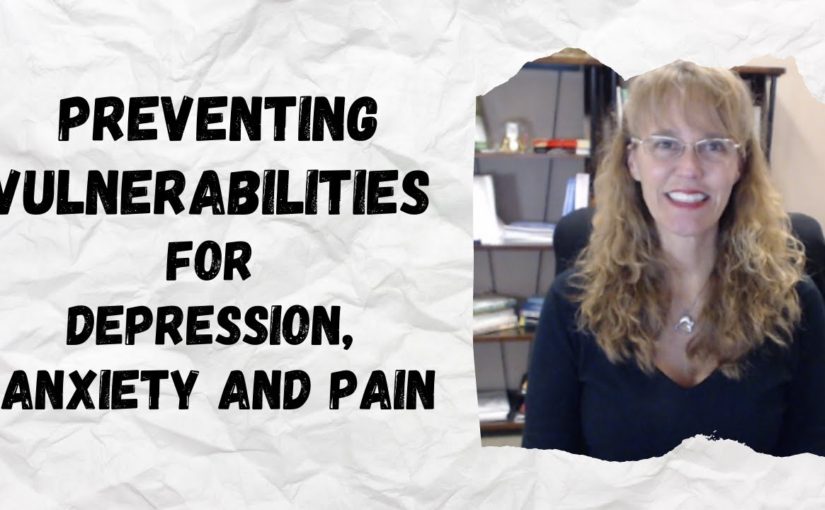

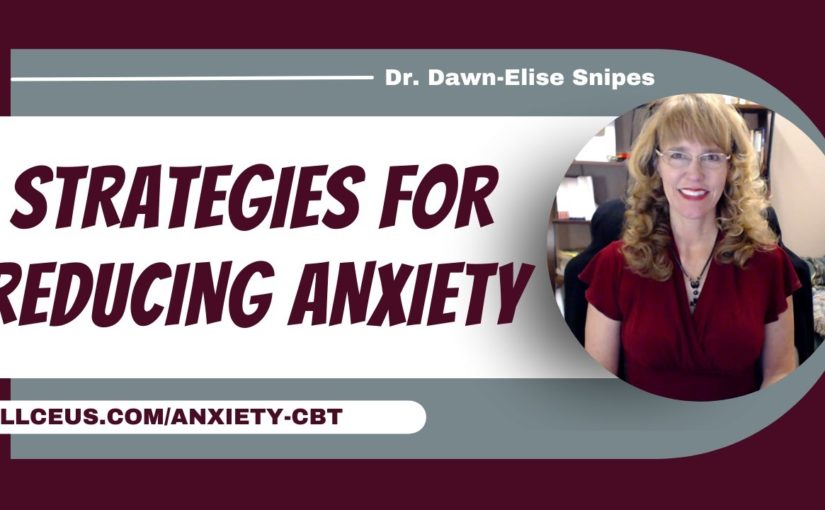
 The Market WeekSign Up For The Free Newsletter No nonsense, no spam, unsubscribe anytime You can unsubscribe at any time. Read our privacy policy. Financial disclaimer: The Market Week is a general interest newsletter that is not liable for the suitability or future investment performance of any securities or strategies discussed. Readers are advised that the material contained herein should be used solely for informational purposes. As a financial newsletter publisher of general and regular circulation, we cannot tender individual investment advice. Read our full disclaimer.
The Market WeekSign Up For The Free Newsletter No nonsense, no spam, unsubscribe anytime You can unsubscribe at any time. Read our privacy policy. Financial disclaimer: The Market Week is a general interest newsletter that is not liable for the suitability or future investment performance of any securities or strategies discussed. Readers are advised that the material contained herein should be used solely for informational purposes. As a financial newsletter publisher of general and regular circulation, we cannot tender individual investment advice. Read our full disclaimer. 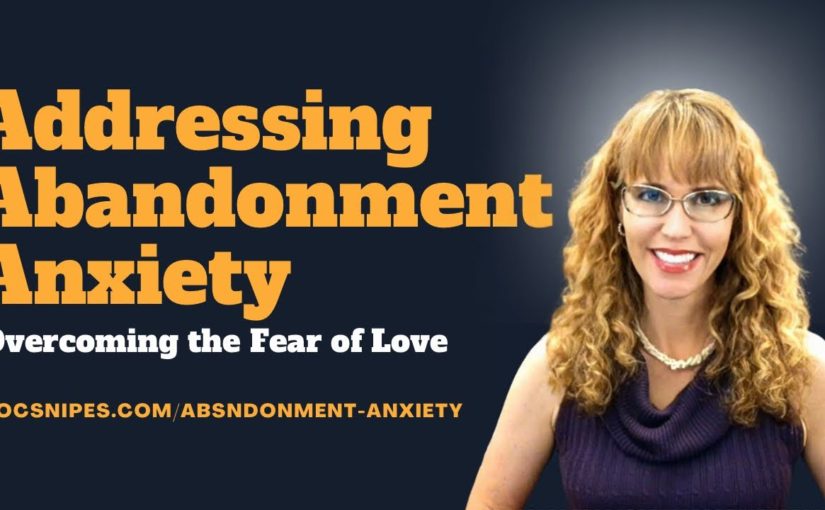




























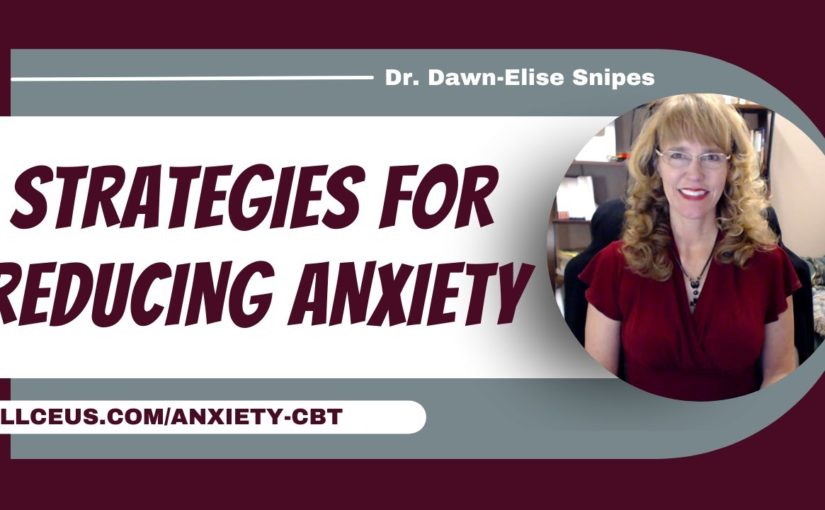
 Snipes by subscribing
at all CEUs comm slash counselor toolbox, this episode has been brought to you in part by all
CEUs calmly provide 24/7 multimedia continuing education and pre-certification training to
counselors therapists and nurses since 2006 have used coupon code consular toolbox to get
a 20% discount on your order this month.
Snipes by subscribing
at all CEUs comm slash counselor toolbox, this episode has been brought to you in part by all
CEUs calmly provide 24/7 multimedia continuing education and pre-certification training to
counselors therapists and nurses since 2006 have used coupon code consular toolbox to get
a 20% discount on your order this month.





















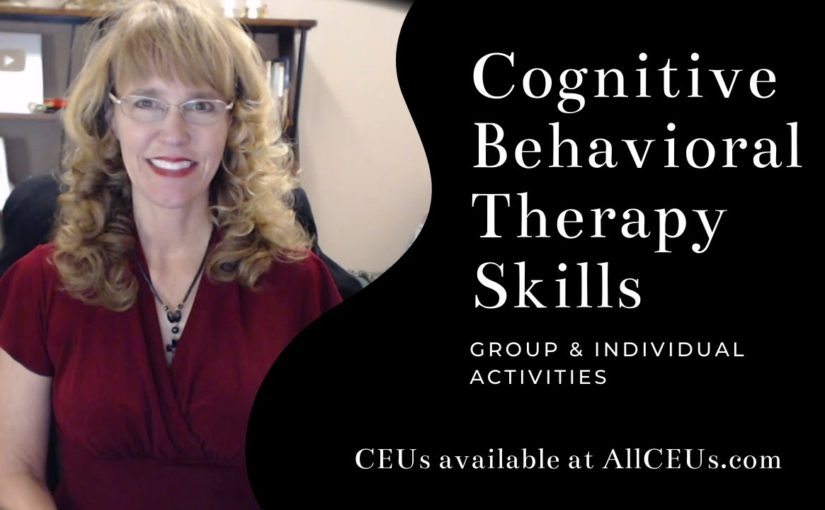



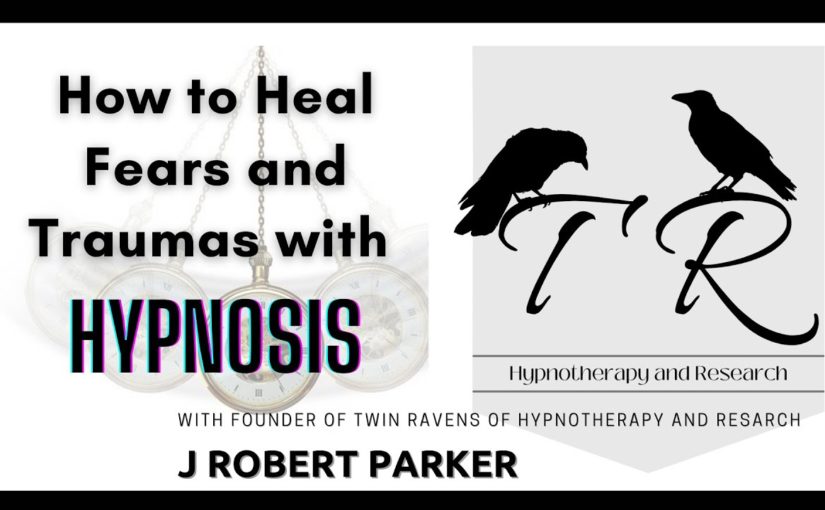
 You know, that’s just bringing up things that um that don’t necessarily need to be brought up or you can retraumatize people. X, Y, Z, focus on the solution, focus on the future, and more of like the positive thinking kind of approach. Um, I’m curious about what your thoughts on that are. It depends on the trauma Uh if it’s something like that they view as very grievous, it is something bad. I don’t ever ask people what their traumatic thing is. Like, you can just tell me that something bad happened in 2,000 seven. And that’s all I need to know. Uh, beyond that, all I, with, with that, I will, there’s a couple ways. But you, there’s no direct reexperience. You don’t take them back and make them live through it again. It’s antithetical to the goal. What you do is you take away that association. You make that not a core memory. They don’t focus on the events. They focus on the resolution. And the letting goes after that resolution. There’s a method that I very much enjoy that involves having them perceive this event on a screen. And they fast forward and rewind and fast forward and rewind until all that exists before the event and after the event. that that association is. And then after you establish that, you let them let go of that memory, of that association. And Trauma is very dependent on what happened. And uh sometimes it’s dependent upon um my referral. Because many times whenever it’s complex trauma uh I’m speaking to them on referrals from a mental health professional. Mhm. And a lot of it has to do with my communications with that mental health professionals. Whatever you learn. You know you’ve done. What do you need to be done? Um, it’s very important if you do find yourself working with uh medical doctor or mental health professional to get on the same page with them. Like involve yourself in that client and have them help you, help them, help that client. It’s a team effort at that point. It’s so dependent because II work with people with combat PTSD. I have uh postpartum depression. It’s just a matter of where this trauma and negative behavior come from. Often, uh with the combat PTSD, it’s always really heartbreaking to do those and I’m very happy that I get a chance to work with those men and women. there’s a lot that’s, for example, like what they’re not allowed to feel. Because you’re expected to, I literally soldier on. Hm. And there comes a time that that’s not a thing anymore. That you have to address what has happened to be able to heal. And I see a very similar thing in combat veterans that I see in people who suffer from trauma. they’ll go back to the closest safe save point in their head Uh it’s usually sometime when they’re a late teenager or soldier. It’s generally seventeen, or eighteen. And they’ll start adopting the traits that age. because they have all of these traumatic memories from older when they were older. So, it seems like psychologically, they just go back to the last time they were safe and untraumatized because it’s no longer safe to be an adult and I see that repeated time and time. Yeah, it’s. Wow. Interesting yeah, it must be very, very difficult to work with. Yeah, people who experience extreme, extreme trauma. Mm-hmm. So. I’m glad you are. But it’s one of those things like, once I realized what hypnosis was capable of and what it could do I kinda felt obligated to offer my services to them because it doesn’t matter what you think politically. It doesn’t matter what you think about war or the war or soldiers, the government, or anything like that. It has to do with these are deeply traumatized people who not getting the care and resolution that they need. I just feel obligated that if I have this toolset that allows me to give them that resolution, I should, that it doesn’t matter anything at all if I’m anti-war, pro-war, anti-government, pro-government, none of that. None of that matters. It’s just people. It’s just men and women who have seen things and done things that no one should be asked to see or do. And that’s it. That’s all it is. I’ve had a chance to see a wonderful change in those people because so much of it is it’s just difficult for them to deal with that, to face that. Whatever it is that they see. to do that is profound. To give them a safe place to do that. That is guided and secure. And it’s an interesting thing that for some reason people are hesitant to seek out psychotherapy. I have no problem with hypnotherapy. That. Really? Yeah, and I don’t know why that is. it’s fine and generally, I will encourage someone that if this isn’t something that they’ve seen a therapist for and they need to in the process of things, just be like, okay, now that we’ve kind of helped you through this, you need to consider bringing on someone else as well.
You know, that’s just bringing up things that um that don’t necessarily need to be brought up or you can retraumatize people. X, Y, Z, focus on the solution, focus on the future, and more of like the positive thinking kind of approach. Um, I’m curious about what your thoughts on that are. It depends on the trauma Uh if it’s something like that they view as very grievous, it is something bad. I don’t ever ask people what their traumatic thing is. Like, you can just tell me that something bad happened in 2,000 seven. And that’s all I need to know. Uh, beyond that, all I, with, with that, I will, there’s a couple ways. But you, there’s no direct reexperience. You don’t take them back and make them live through it again. It’s antithetical to the goal. What you do is you take away that association. You make that not a core memory. They don’t focus on the events. They focus on the resolution. And the letting goes after that resolution. There’s a method that I very much enjoy that involves having them perceive this event on a screen. And they fast forward and rewind and fast forward and rewind until all that exists before the event and after the event. that that association is. And then after you establish that, you let them let go of that memory, of that association. And Trauma is very dependent on what happened. And uh sometimes it’s dependent upon um my referral. Because many times whenever it’s complex trauma uh I’m speaking to them on referrals from a mental health professional. Mhm. And a lot of it has to do with my communications with that mental health professionals. Whatever you learn. You know you’ve done. What do you need to be done? Um, it’s very important if you do find yourself working with uh medical doctor or mental health professional to get on the same page with them. Like involve yourself in that client and have them help you, help them, help that client. It’s a team effort at that point. It’s so dependent because II work with people with combat PTSD. I have uh postpartum depression. It’s just a matter of where this trauma and negative behavior come from. Often, uh with the combat PTSD, it’s always really heartbreaking to do those and I’m very happy that I get a chance to work with those men and women. there’s a lot that’s, for example, like what they’re not allowed to feel. Because you’re expected to, I literally soldier on. Hm. And there comes a time that that’s not a thing anymore. That you have to address what has happened to be able to heal. And I see a very similar thing in combat veterans that I see in people who suffer from trauma. they’ll go back to the closest safe save point in their head Uh it’s usually sometime when they’re a late teenager or soldier. It’s generally seventeen, or eighteen. And they’ll start adopting the traits that age. because they have all of these traumatic memories from older when they were older. So, it seems like psychologically, they just go back to the last time they were safe and untraumatized because it’s no longer safe to be an adult and I see that repeated time and time. Yeah, it’s. Wow. Interesting yeah, it must be very, very difficult to work with. Yeah, people who experience extreme, extreme trauma. Mm-hmm. So. I’m glad you are. But it’s one of those things like, once I realized what hypnosis was capable of and what it could do I kinda felt obligated to offer my services to them because it doesn’t matter what you think politically. It doesn’t matter what you think about war or the war or soldiers, the government, or anything like that. It has to do with these are deeply traumatized people who not getting the care and resolution that they need. I just feel obligated that if I have this toolset that allows me to give them that resolution, I should, that it doesn’t matter anything at all if I’m anti-war, pro-war, anti-government, pro-government, none of that. None of that matters. It’s just people. It’s just men and women who have seen things and done things that no one should be asked to see or do. And that’s it. That’s all it is. I’ve had a chance to see a wonderful change in those people because so much of it is it’s just difficult for them to deal with that, to face that. Whatever it is that they see. to do that is profound. To give them a safe place to do that. That is guided and secure. And it’s an interesting thing that for some reason people are hesitant to seek out psychotherapy. I have no problem with hypnotherapy. That. Really? Yeah, and I don’t know why that is. it’s fine and generally, I will encourage someone that if this isn’t something that they’ve seen a therapist for and they need to in the process of things, just be like, okay, now that we’ve kind of helped you through this, you need to consider bringing on someone else as well.